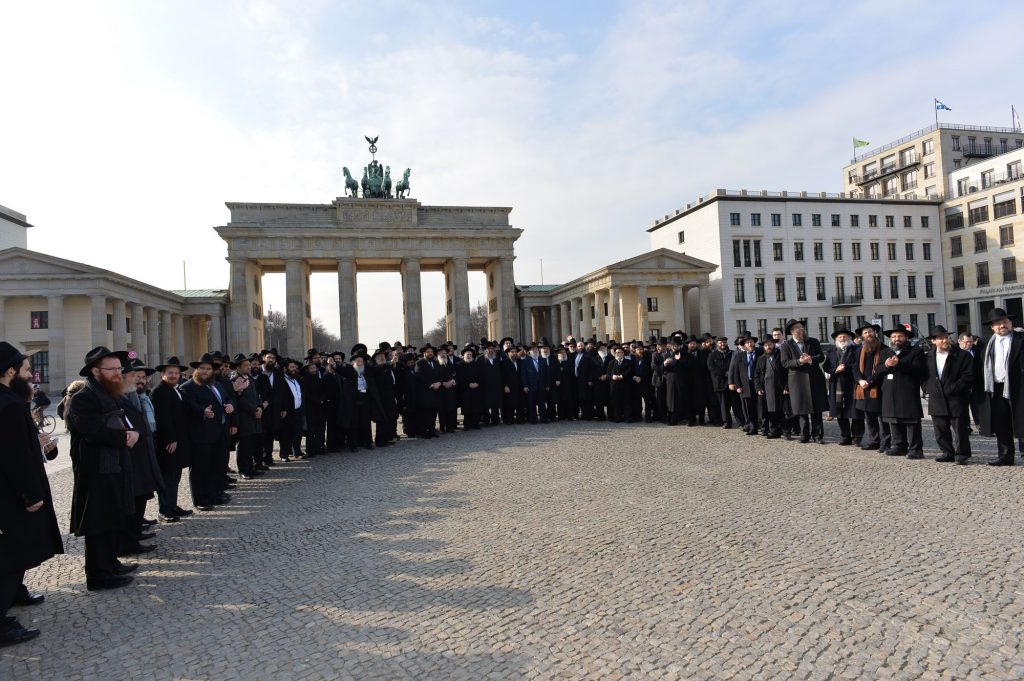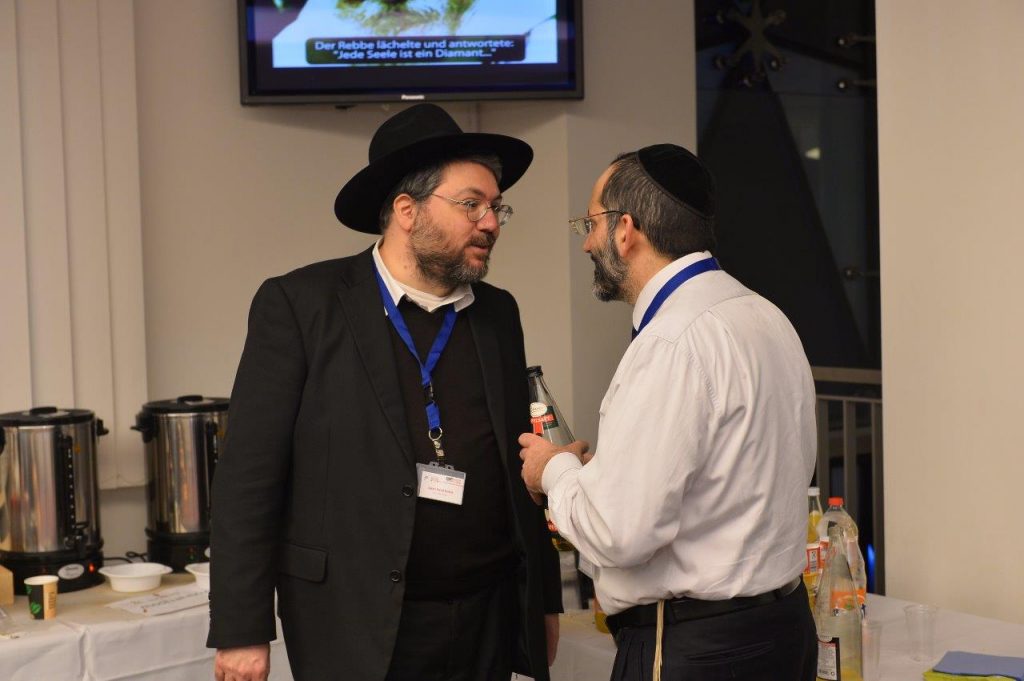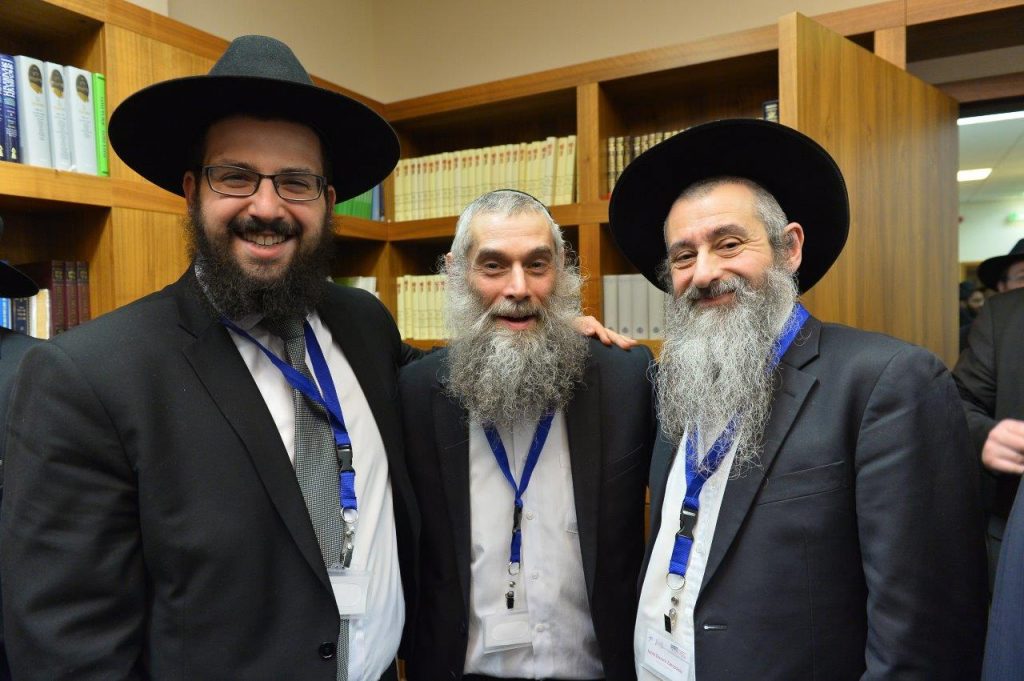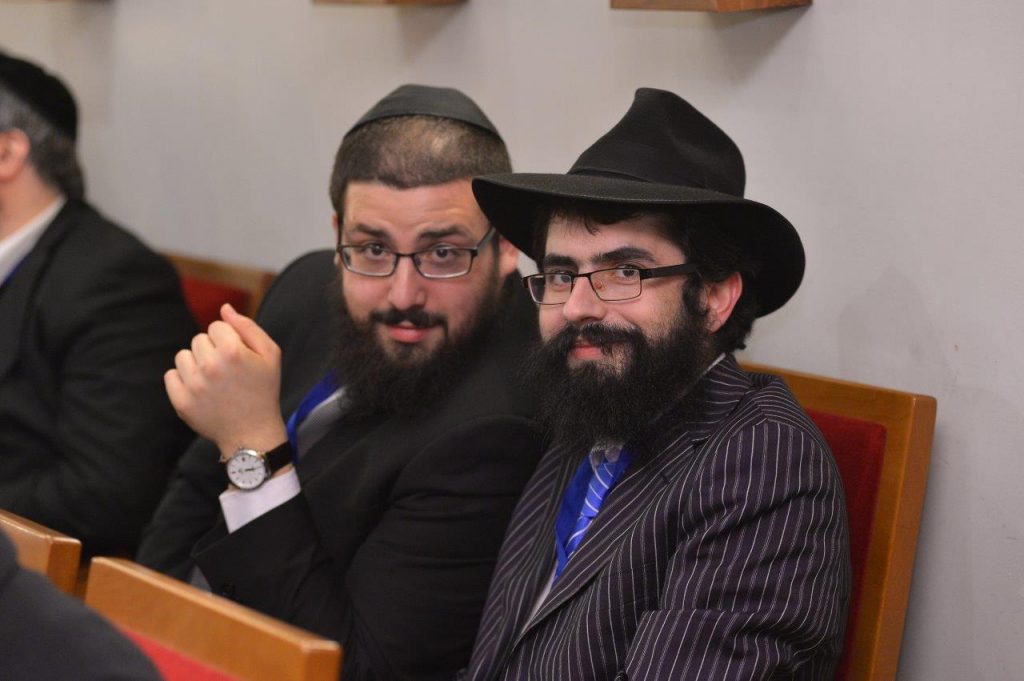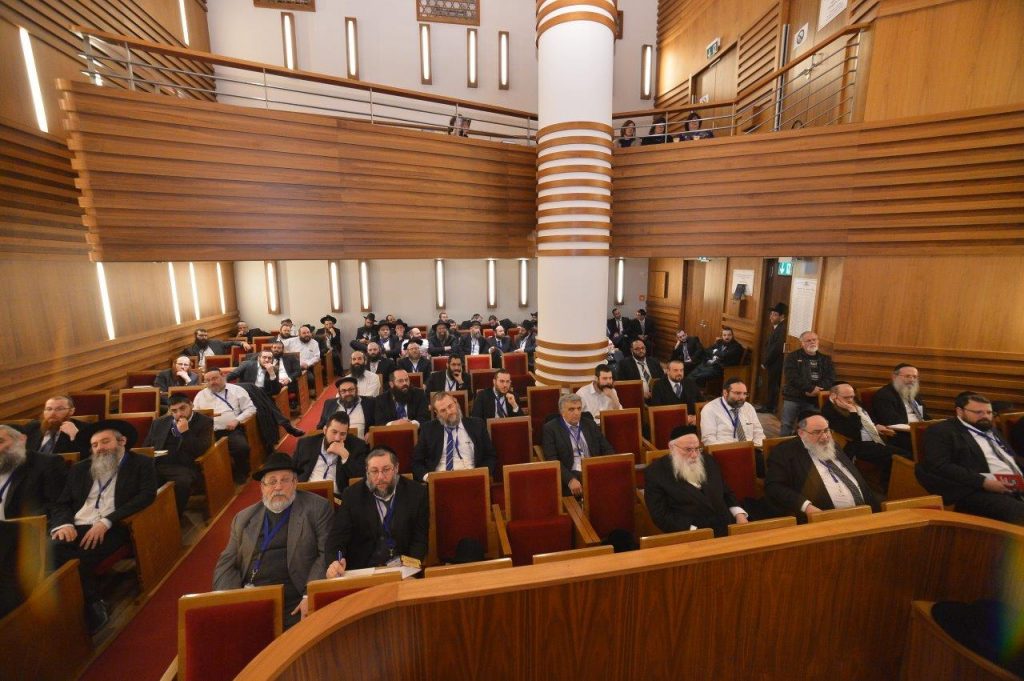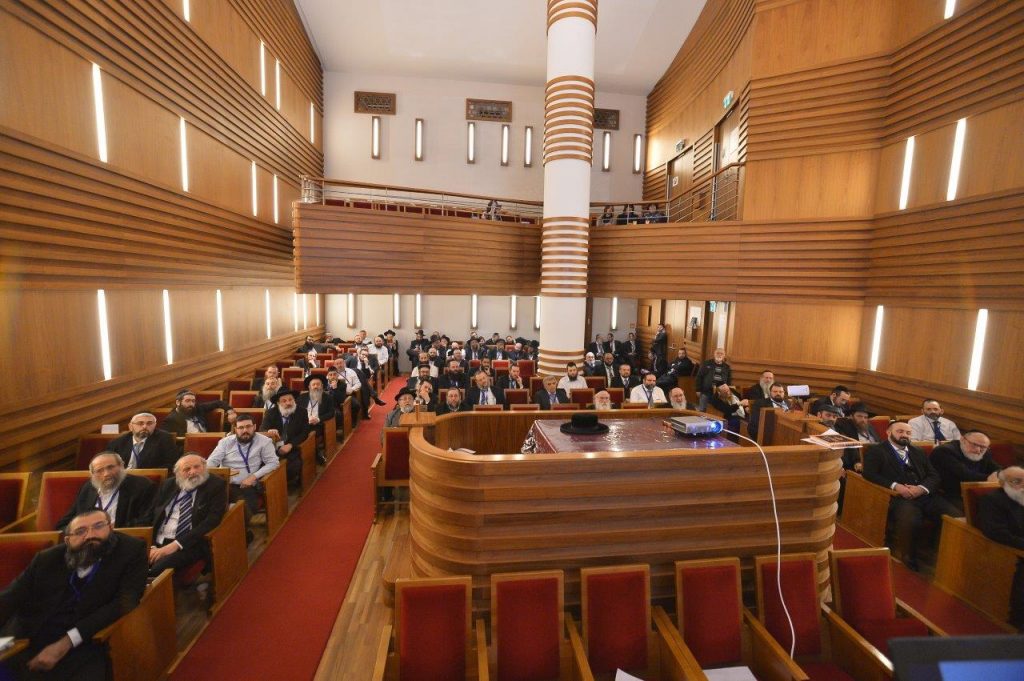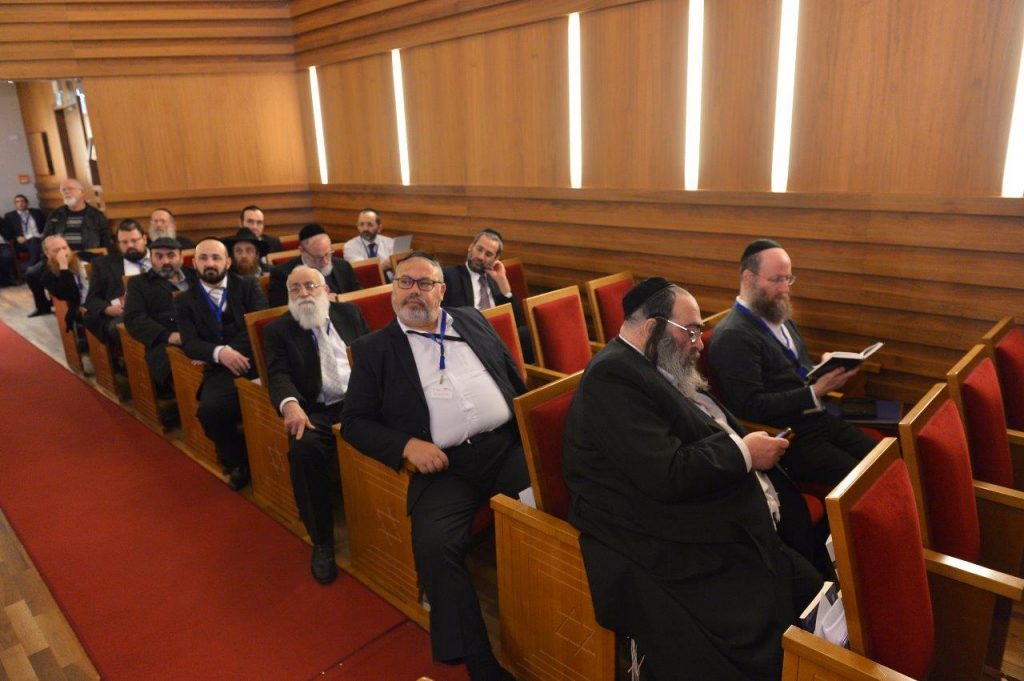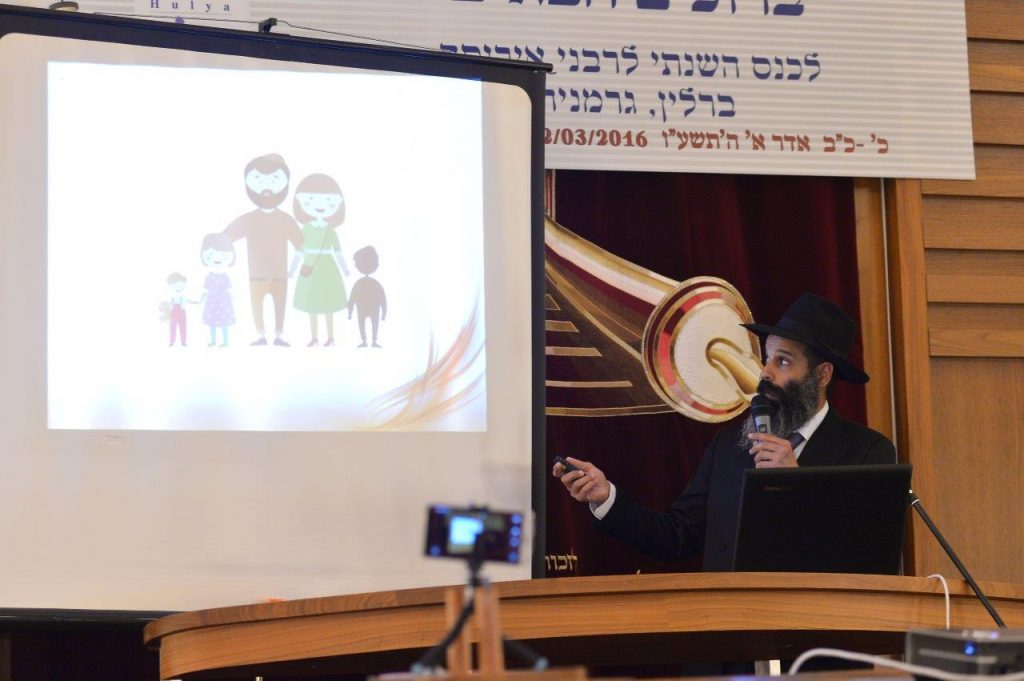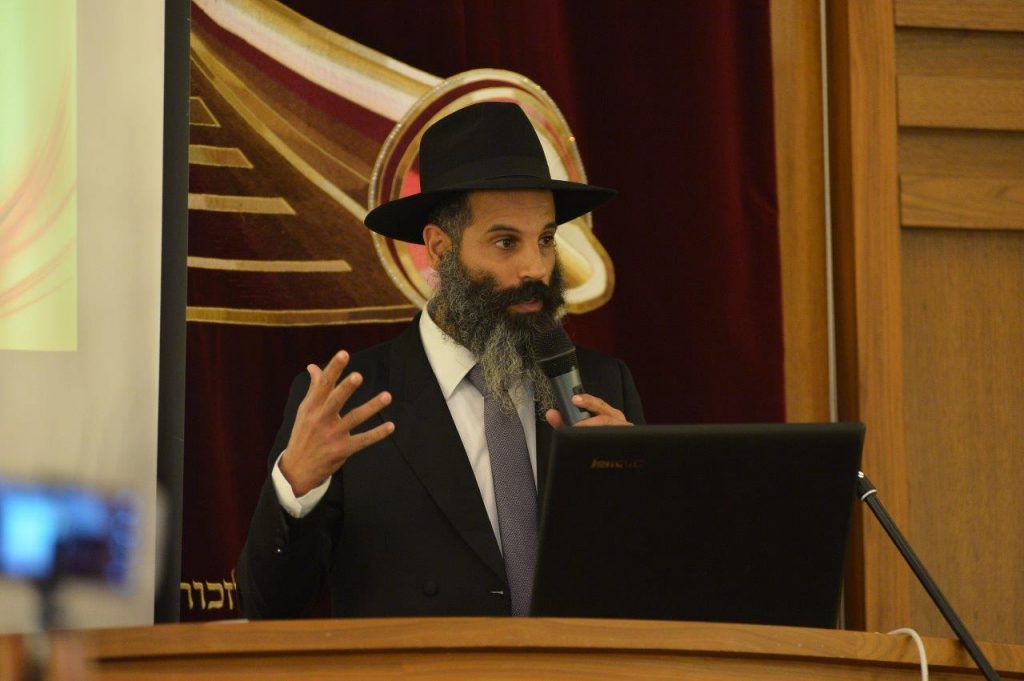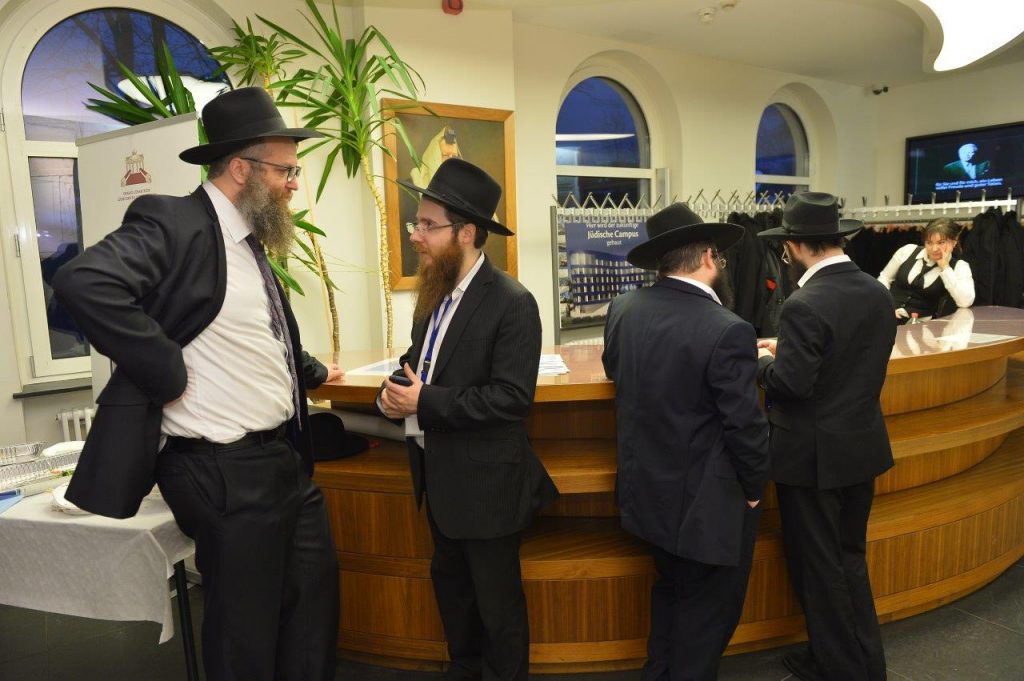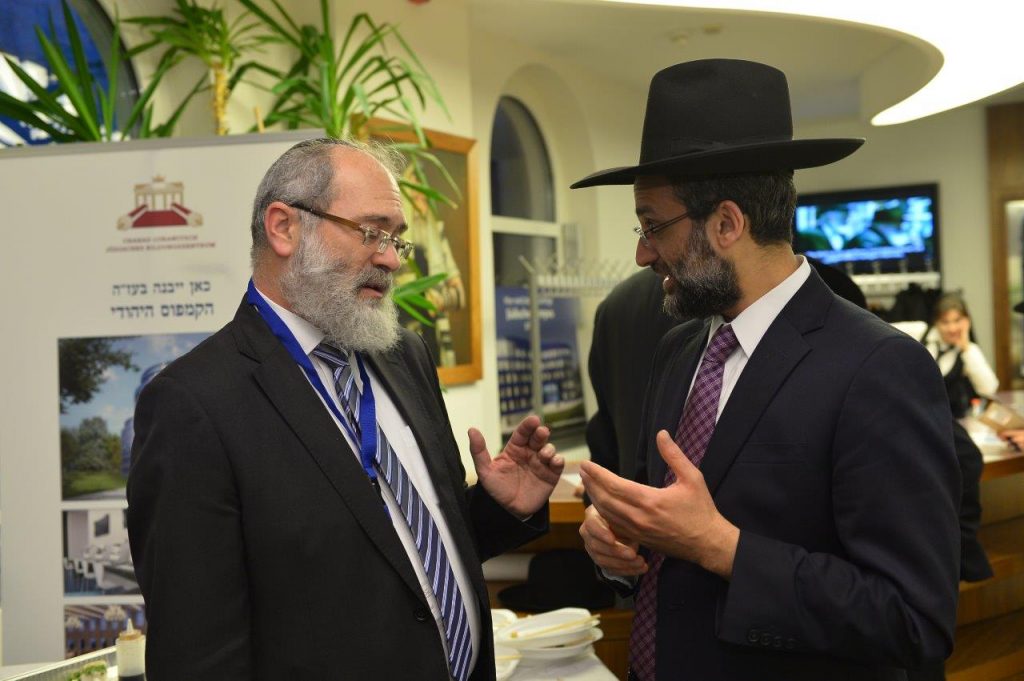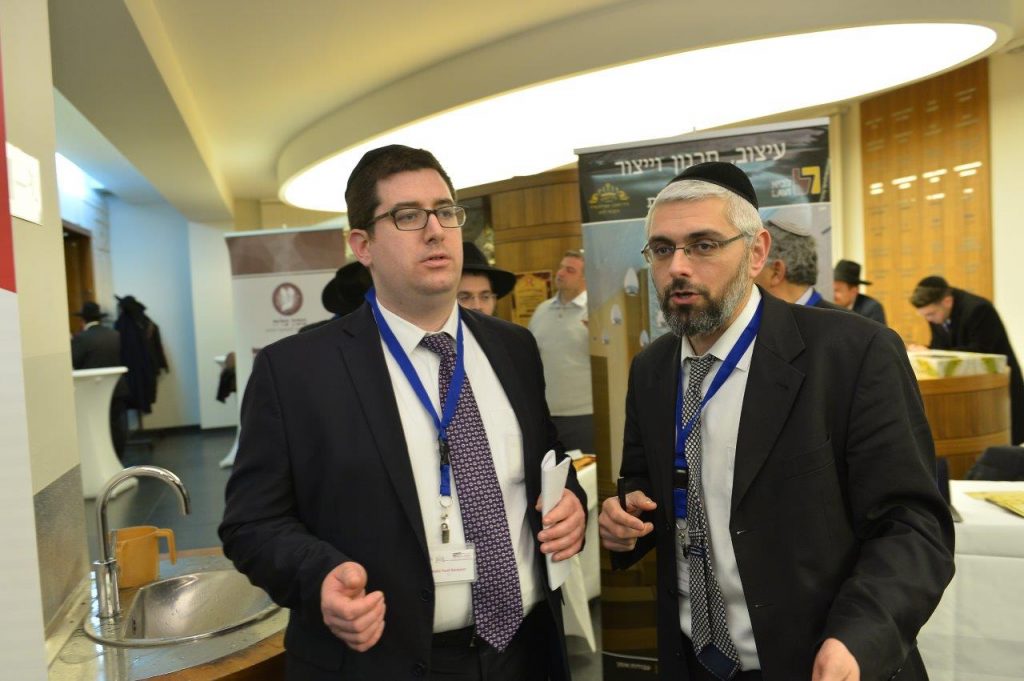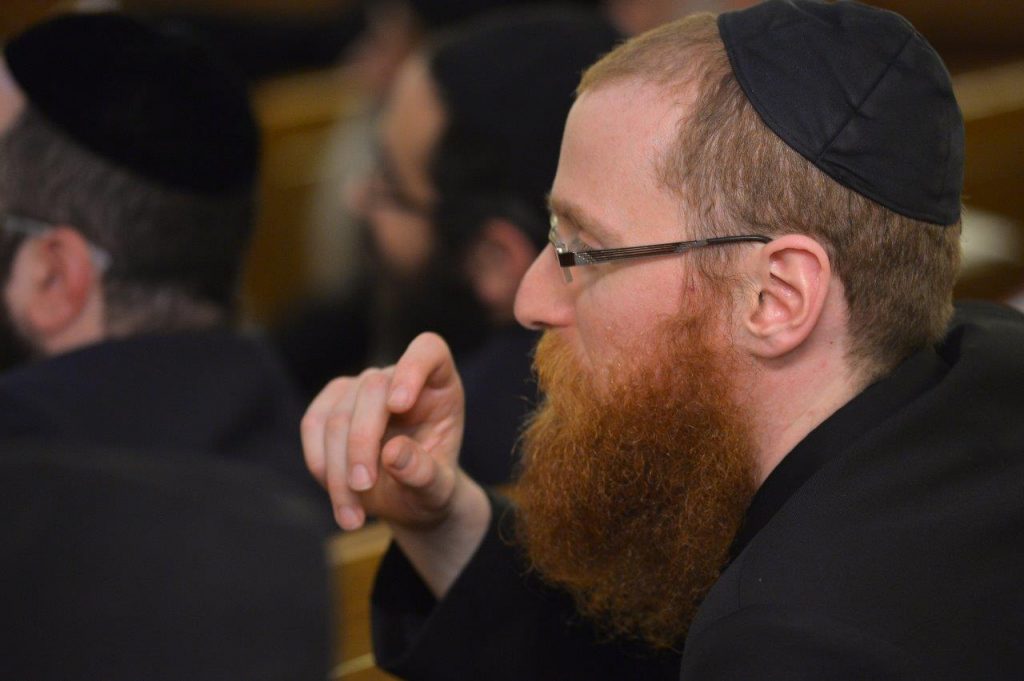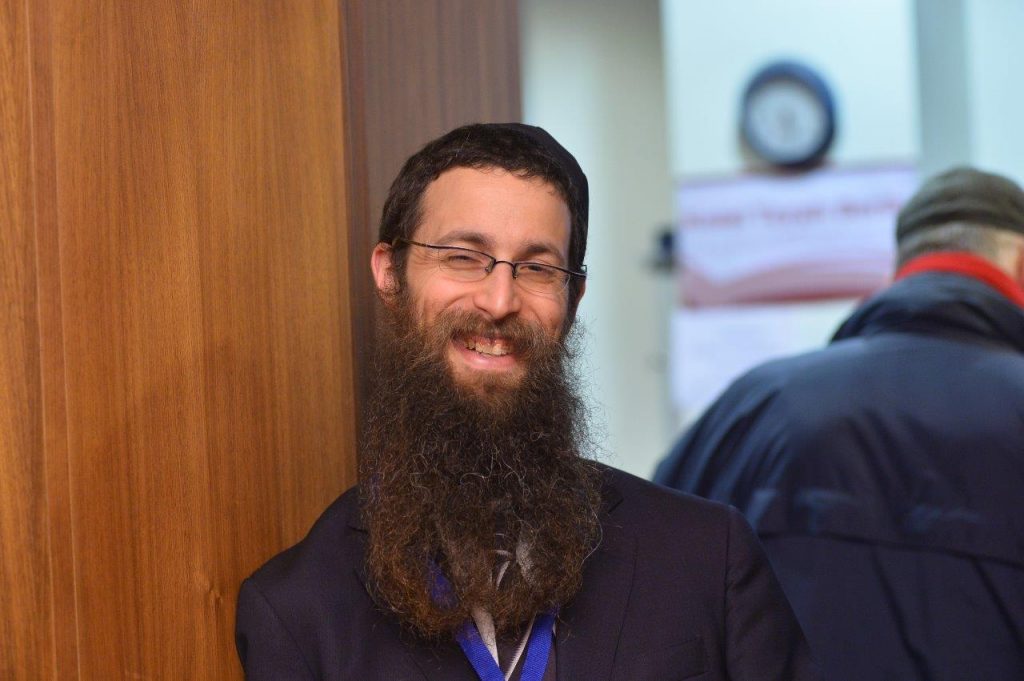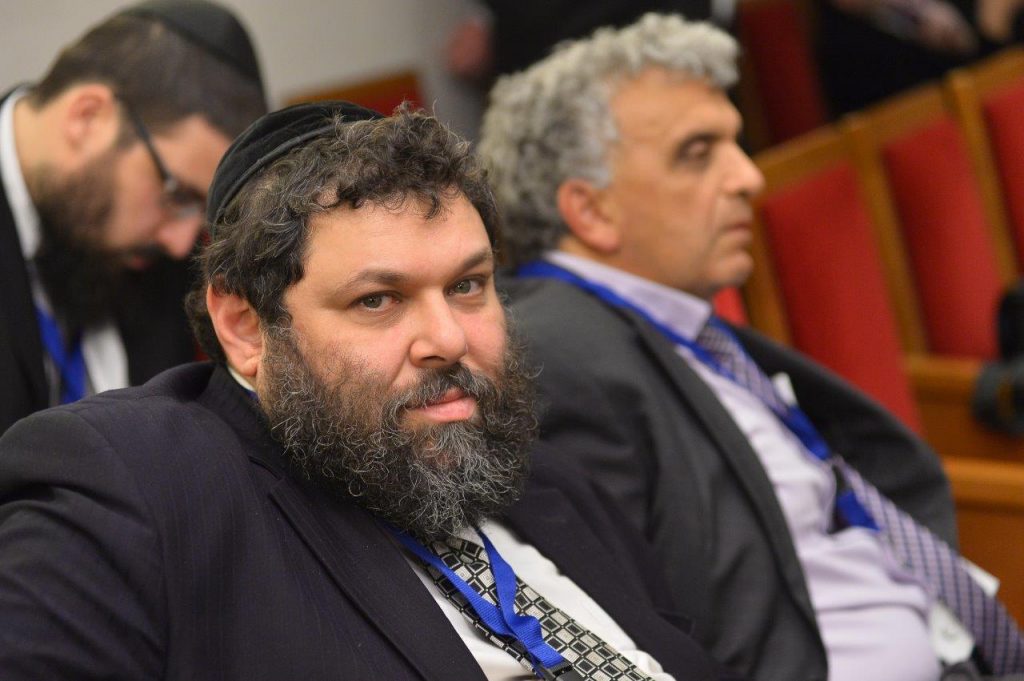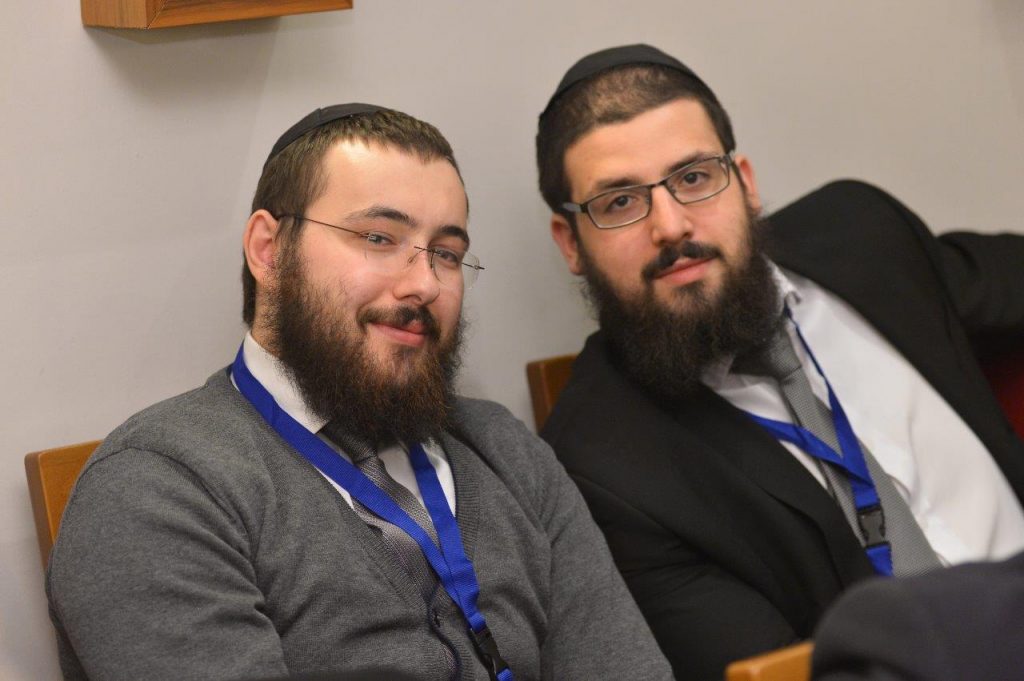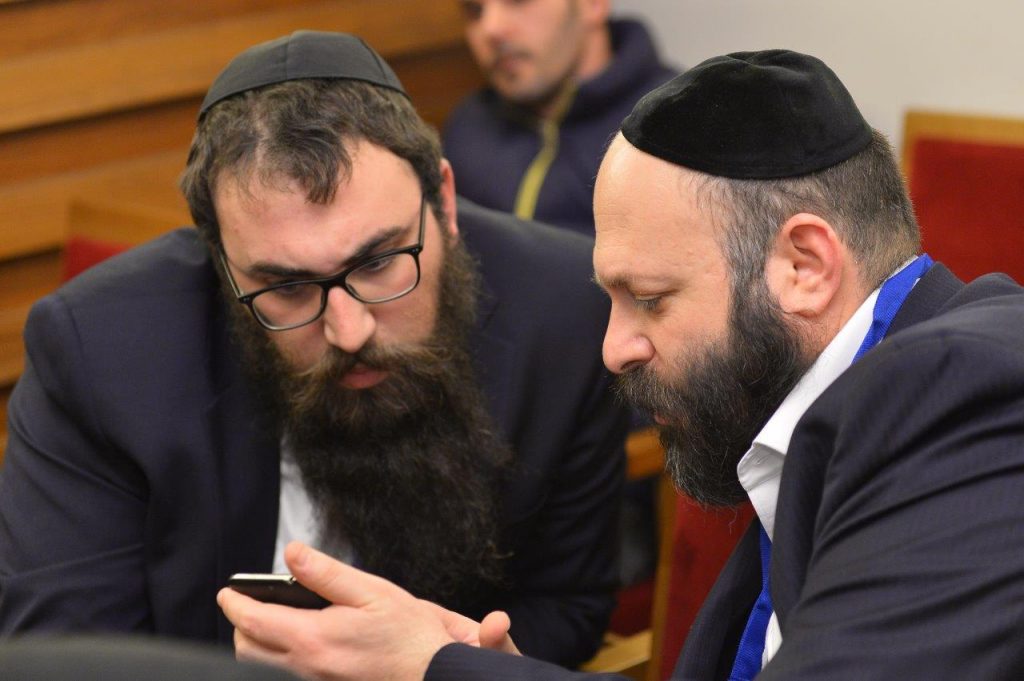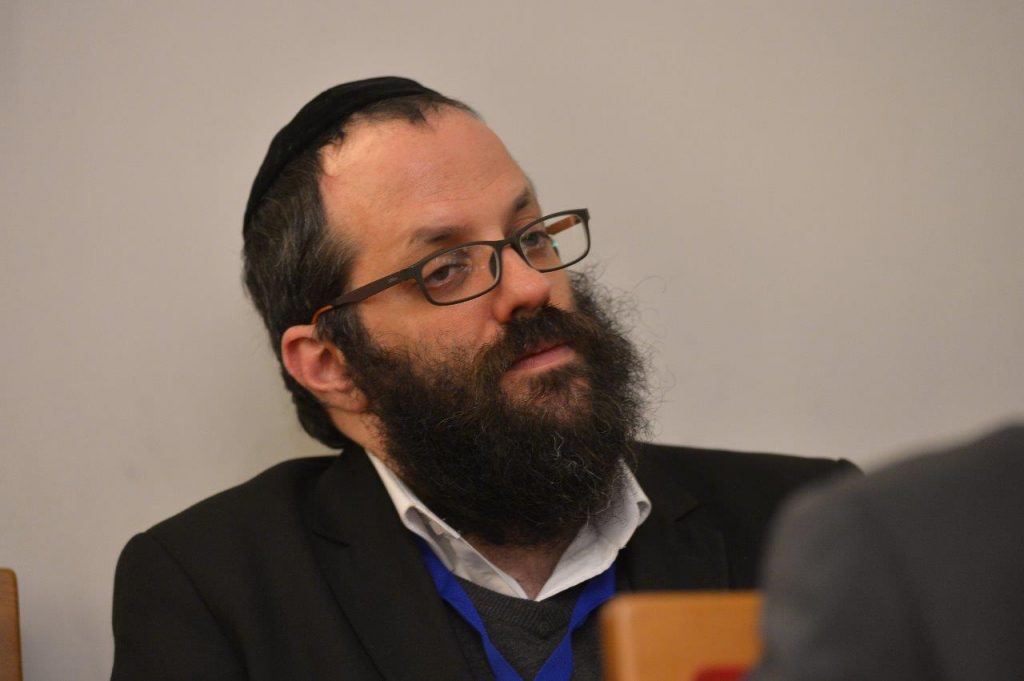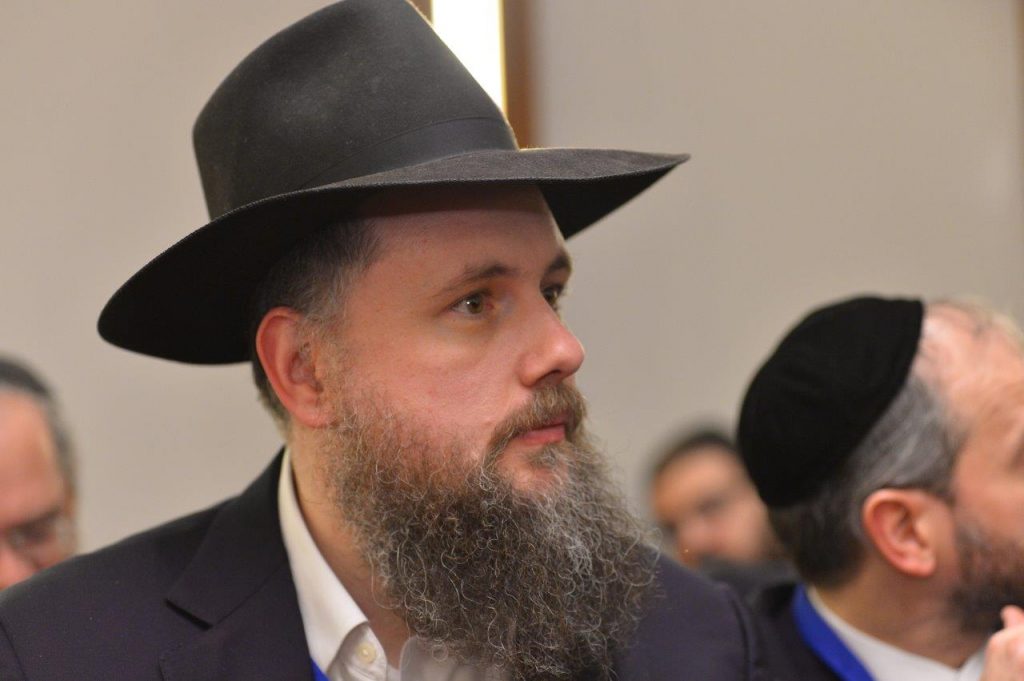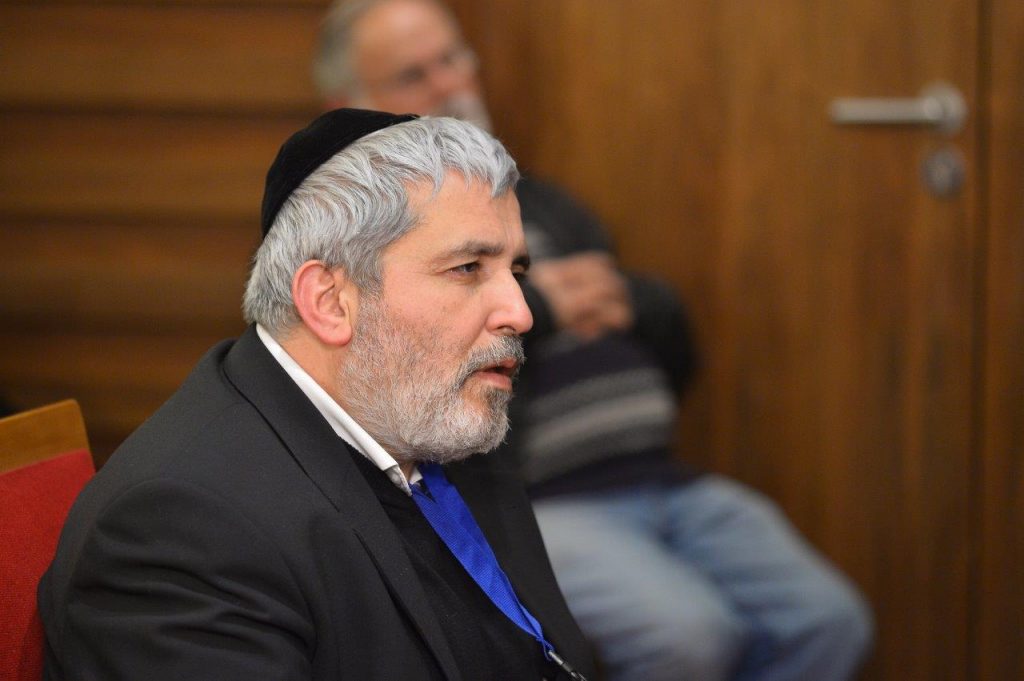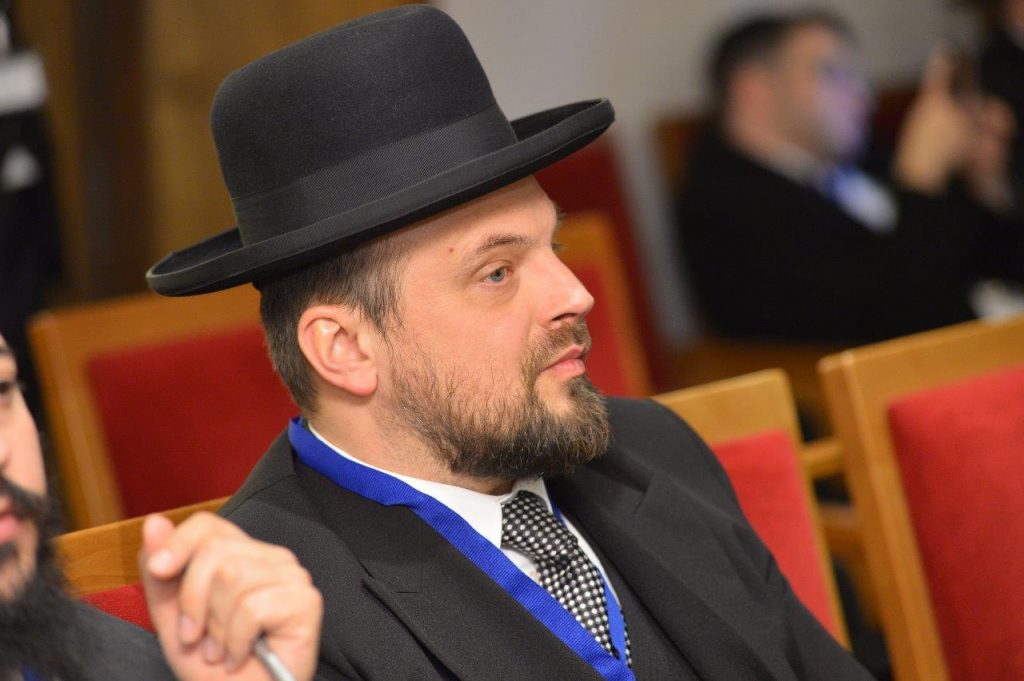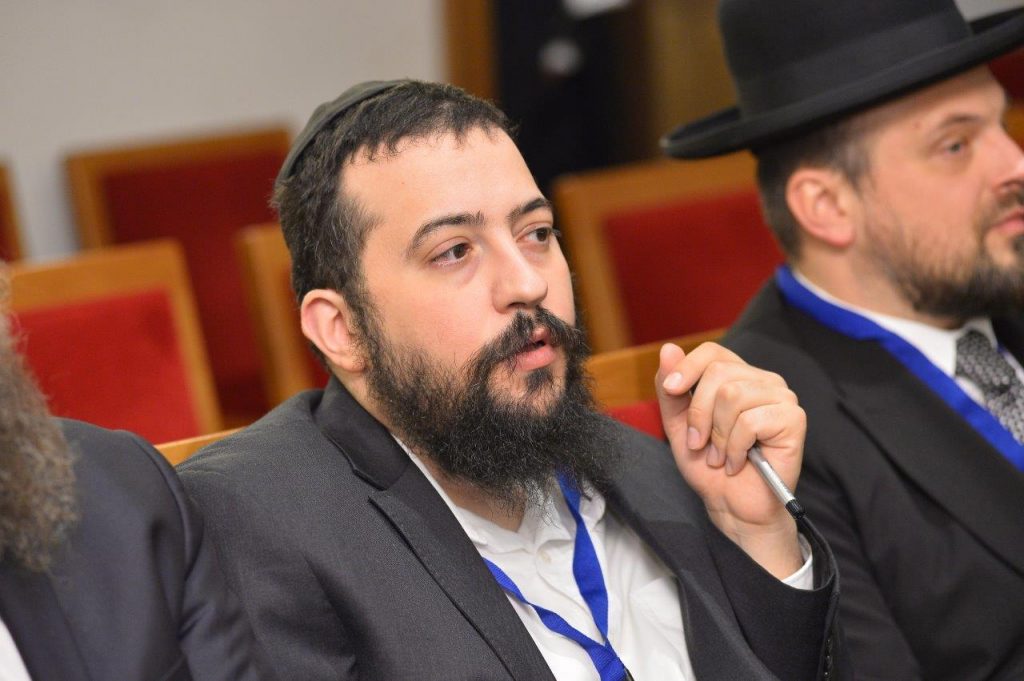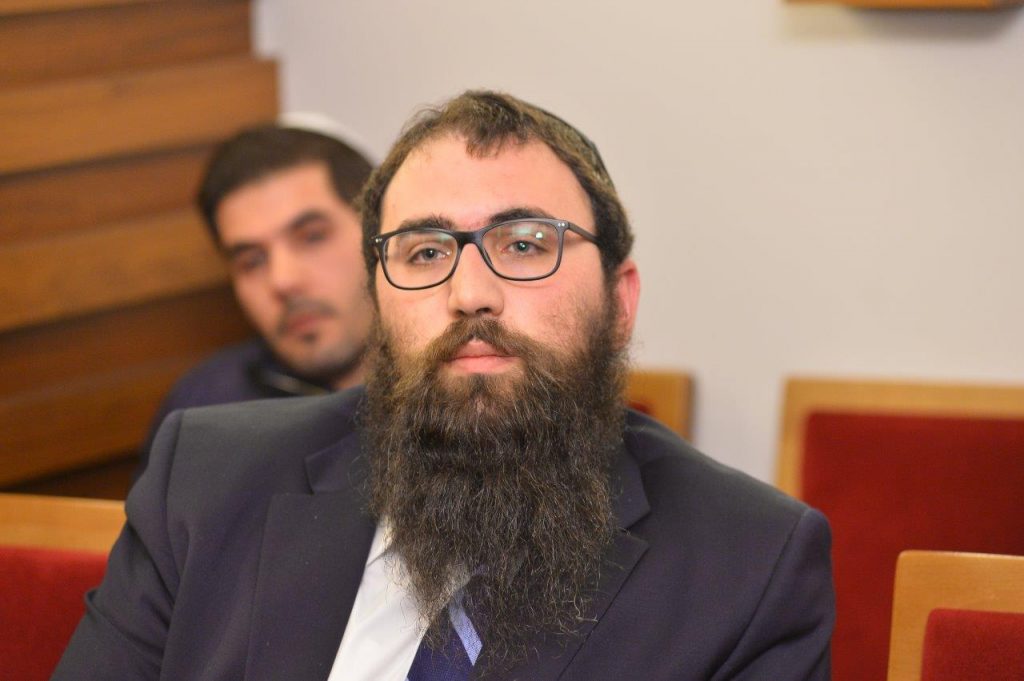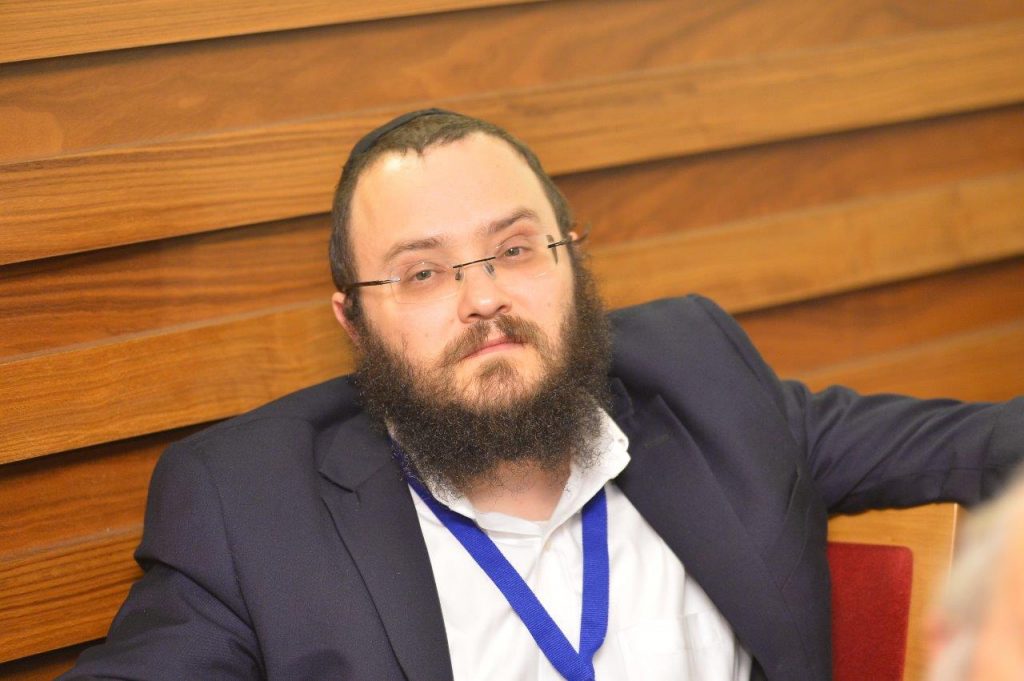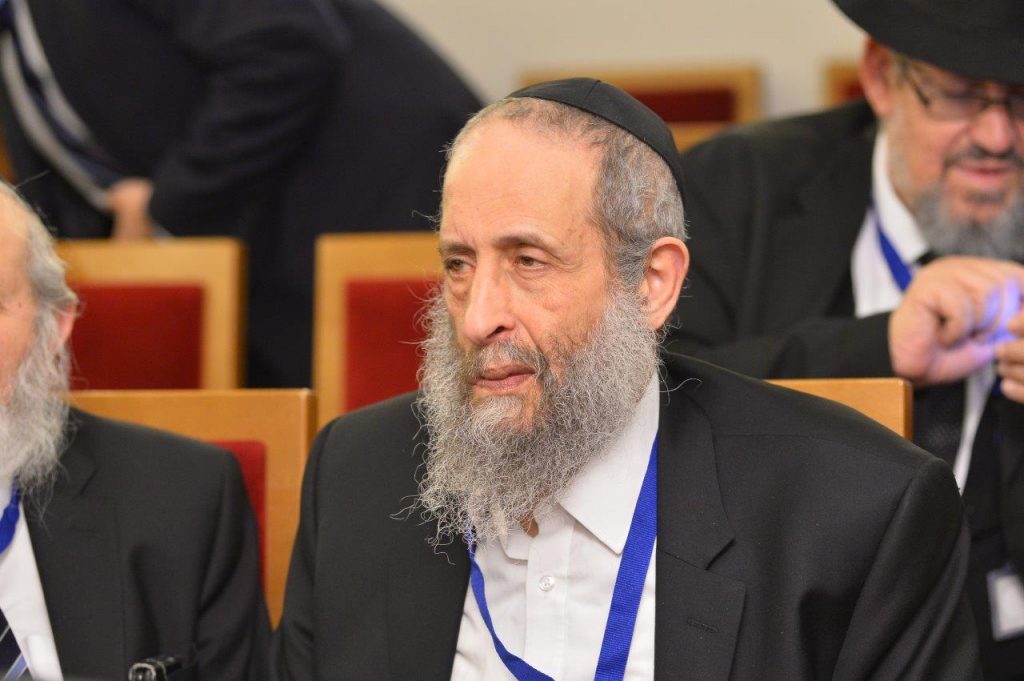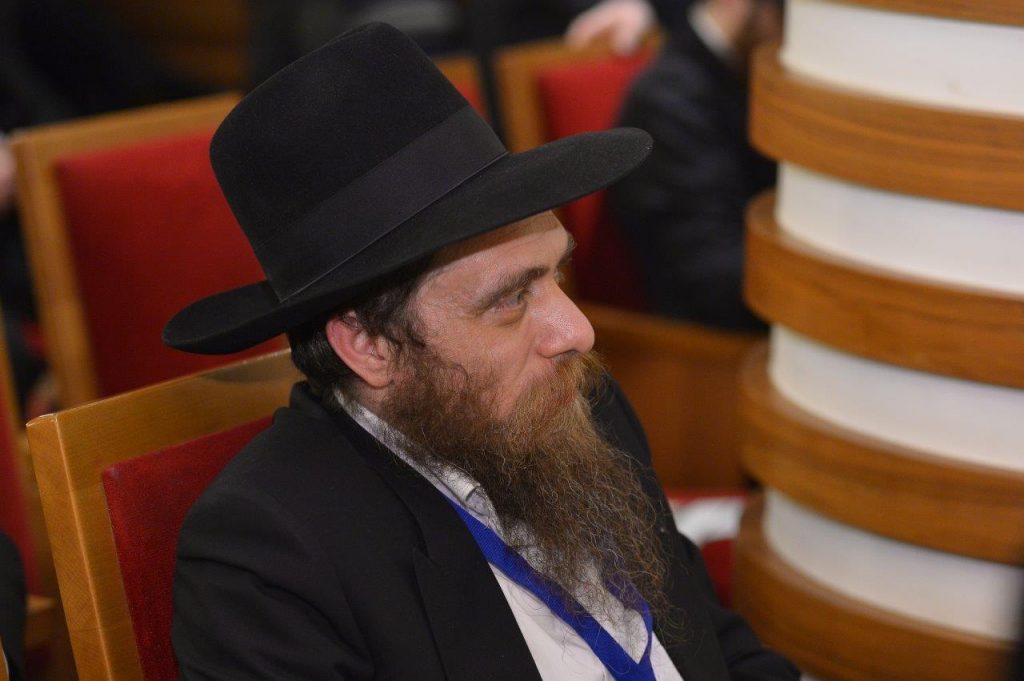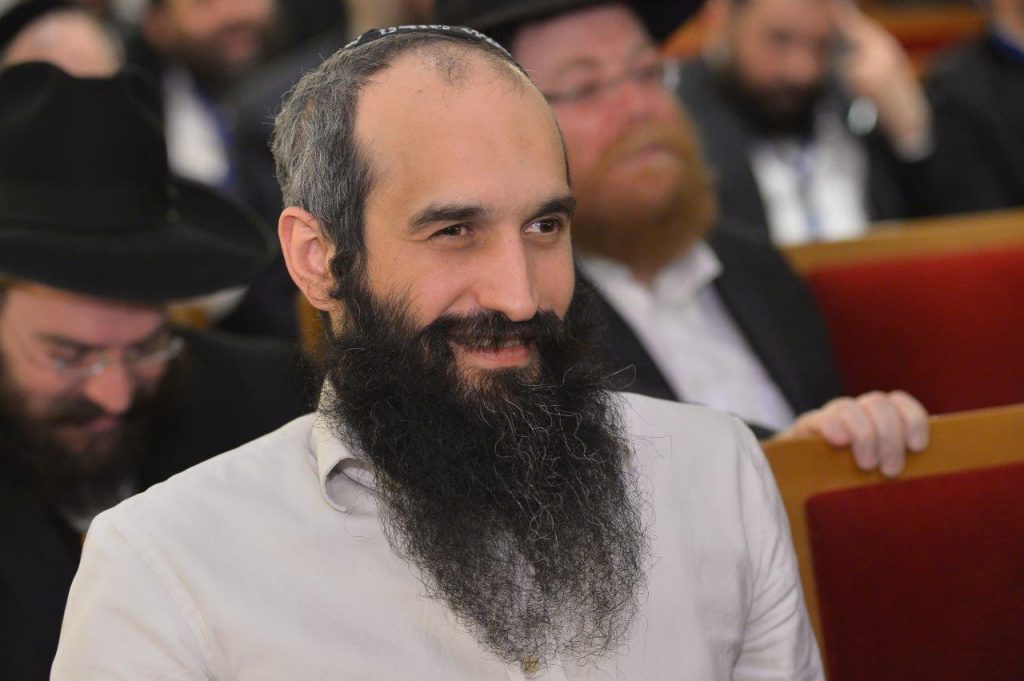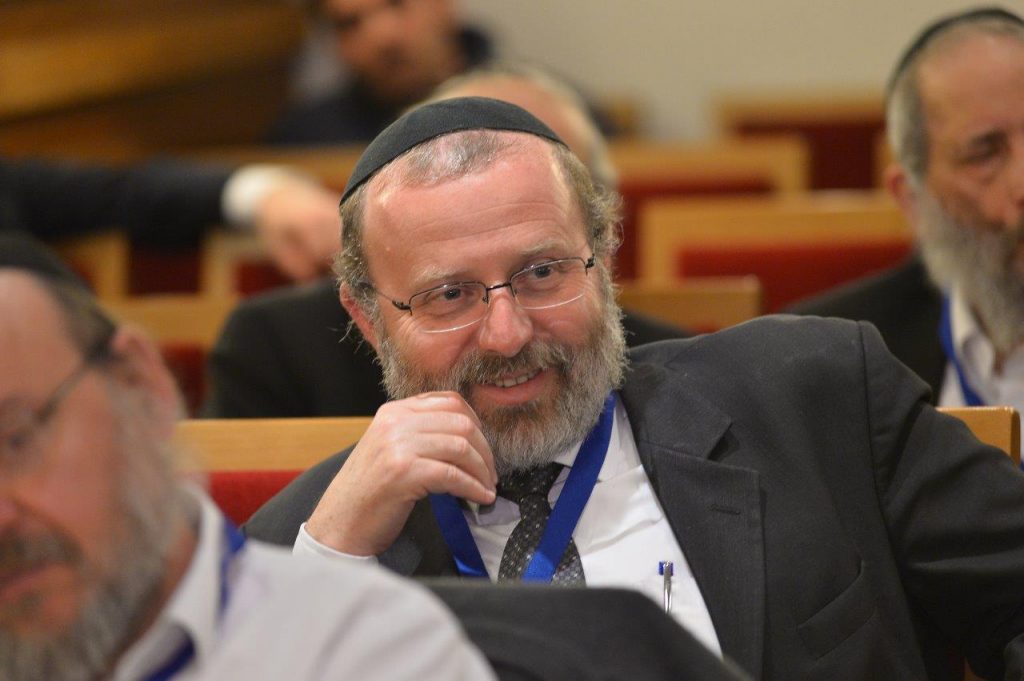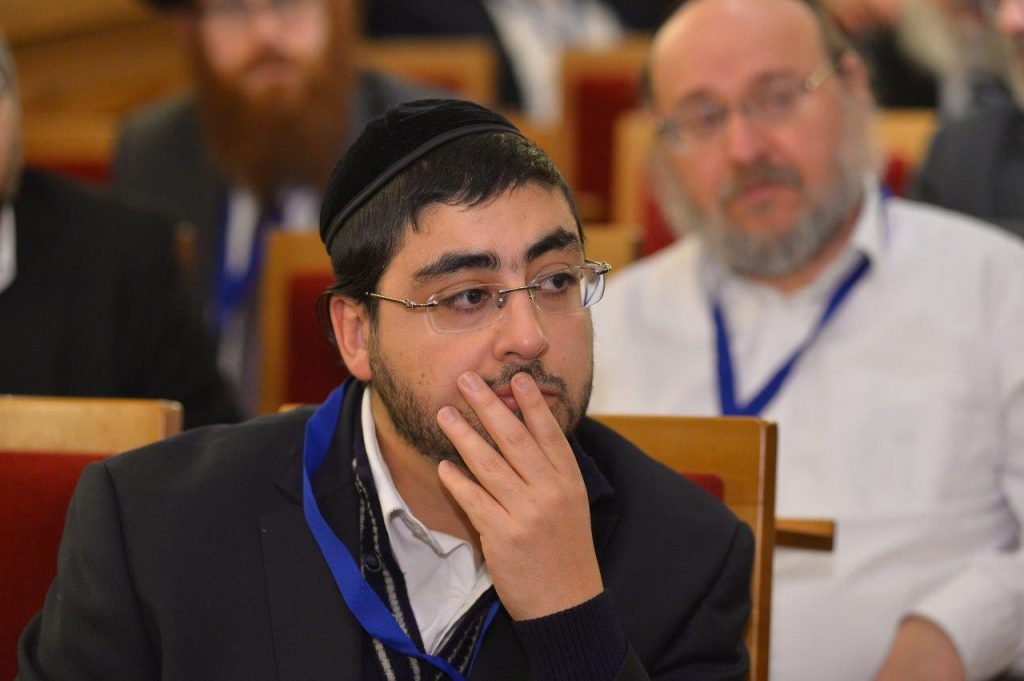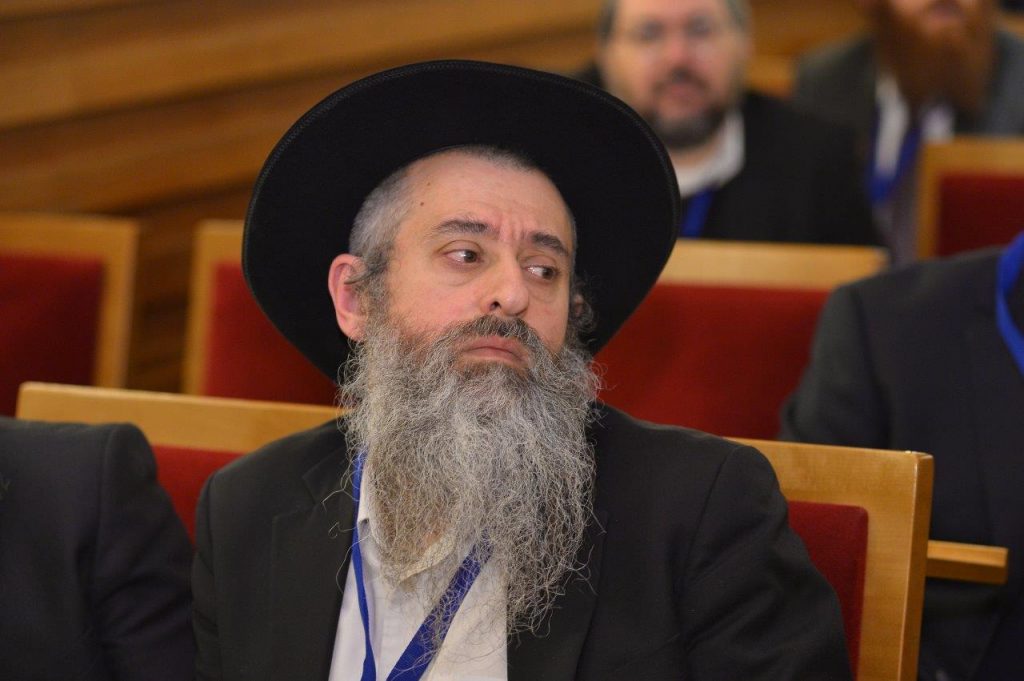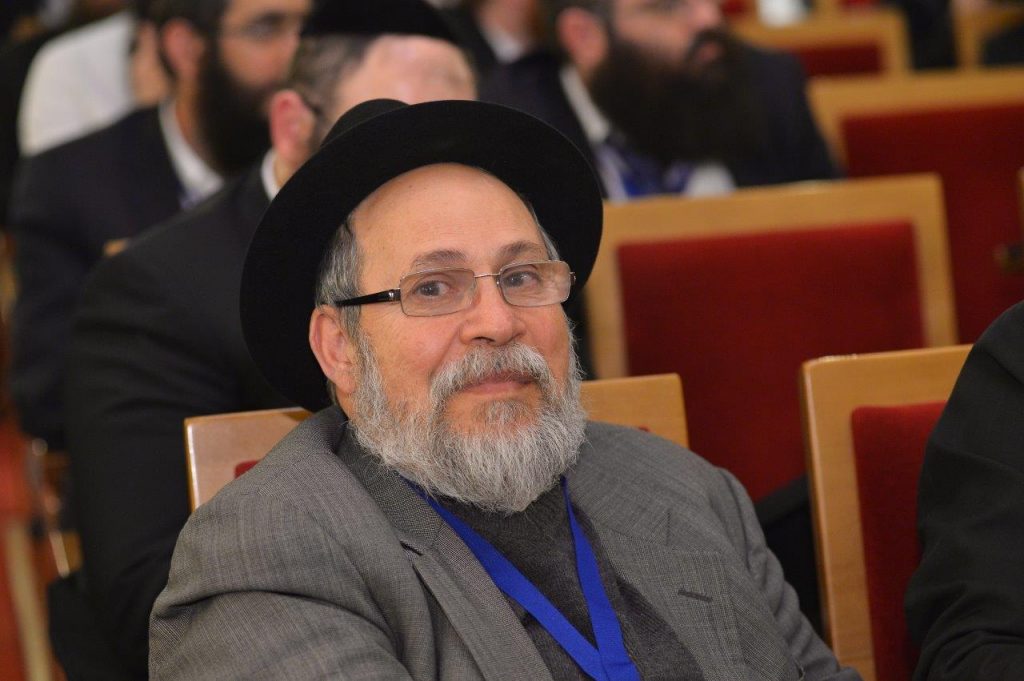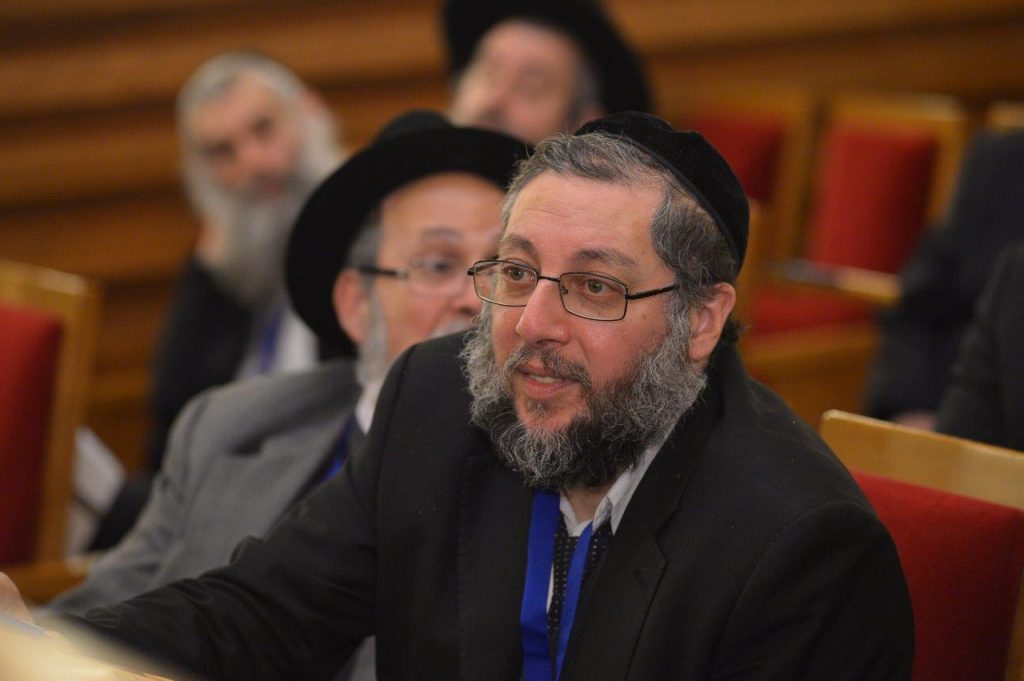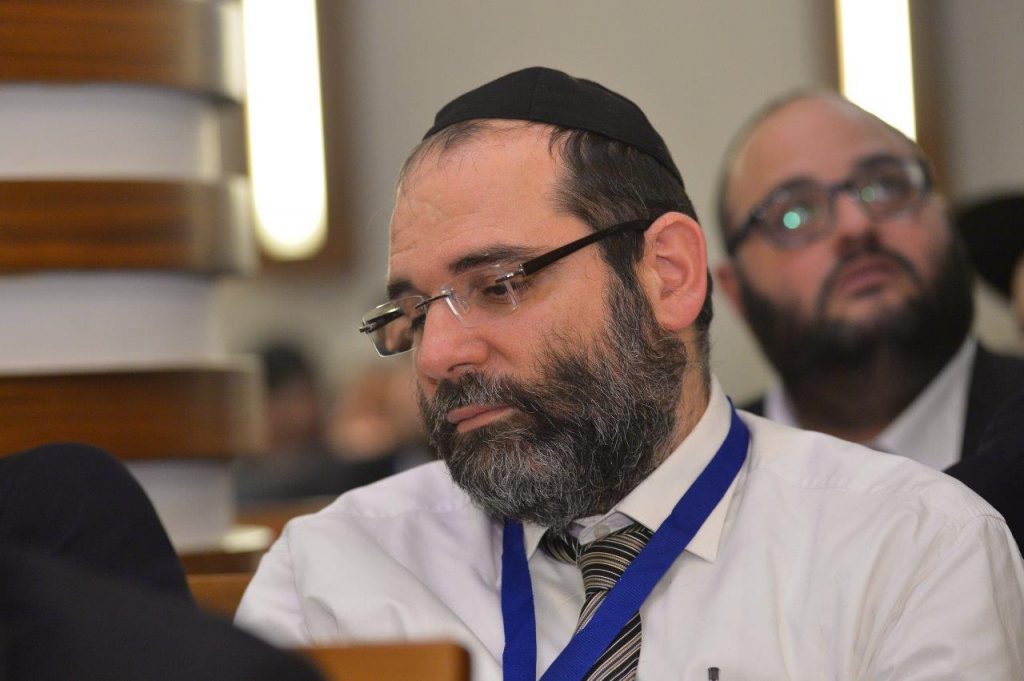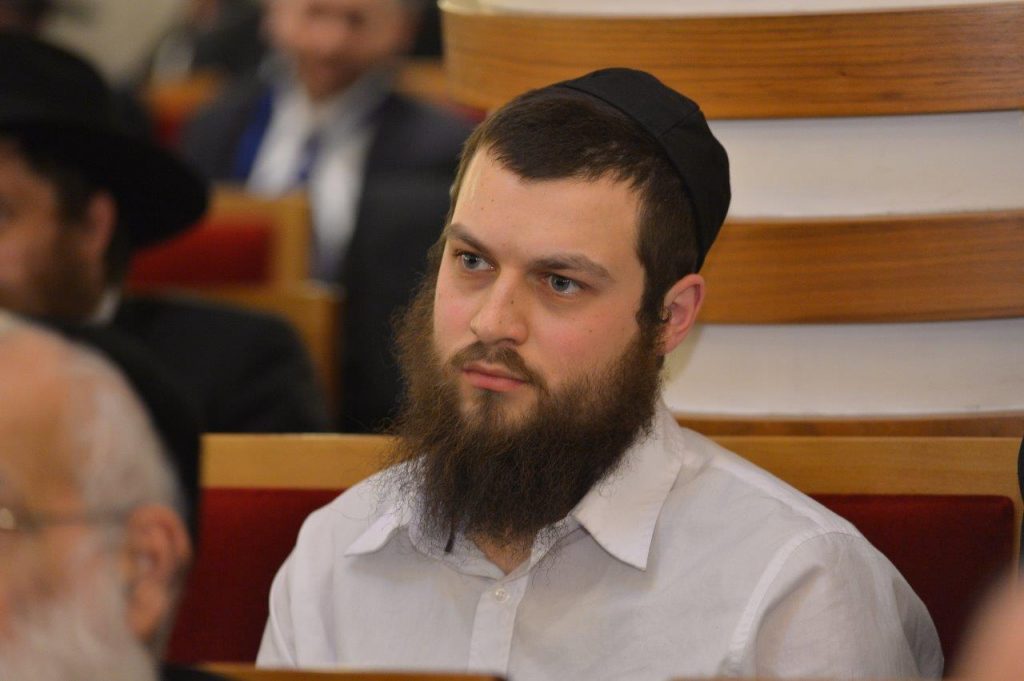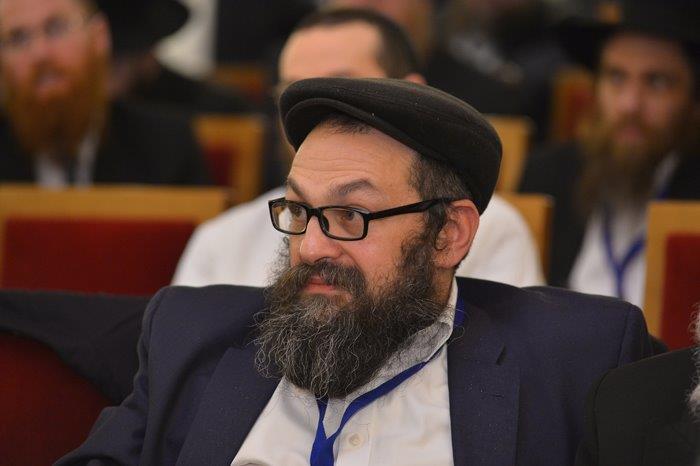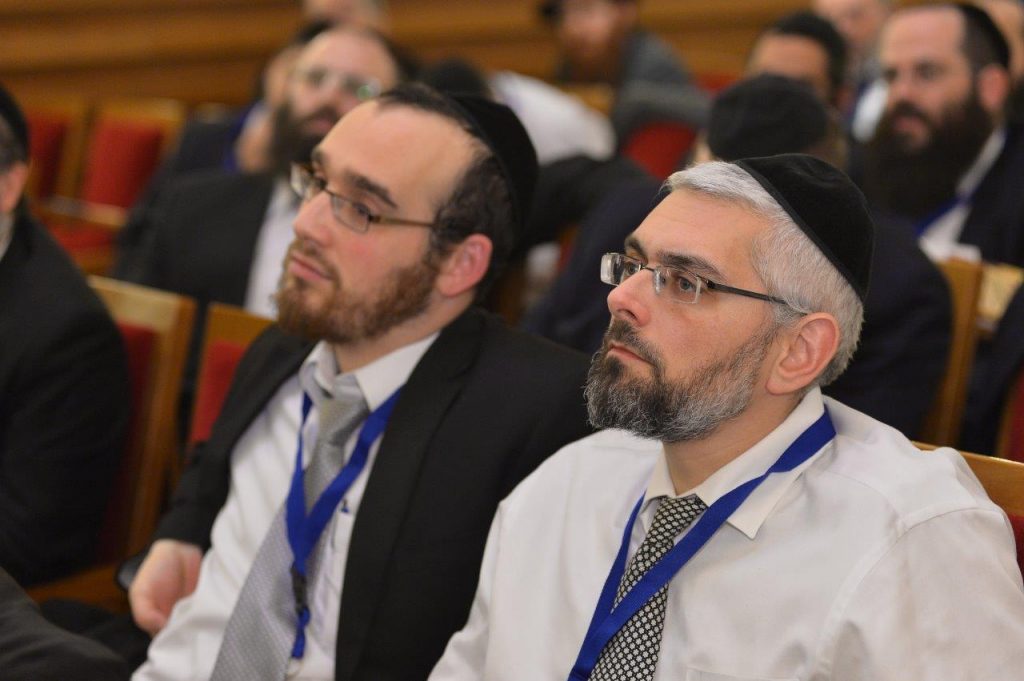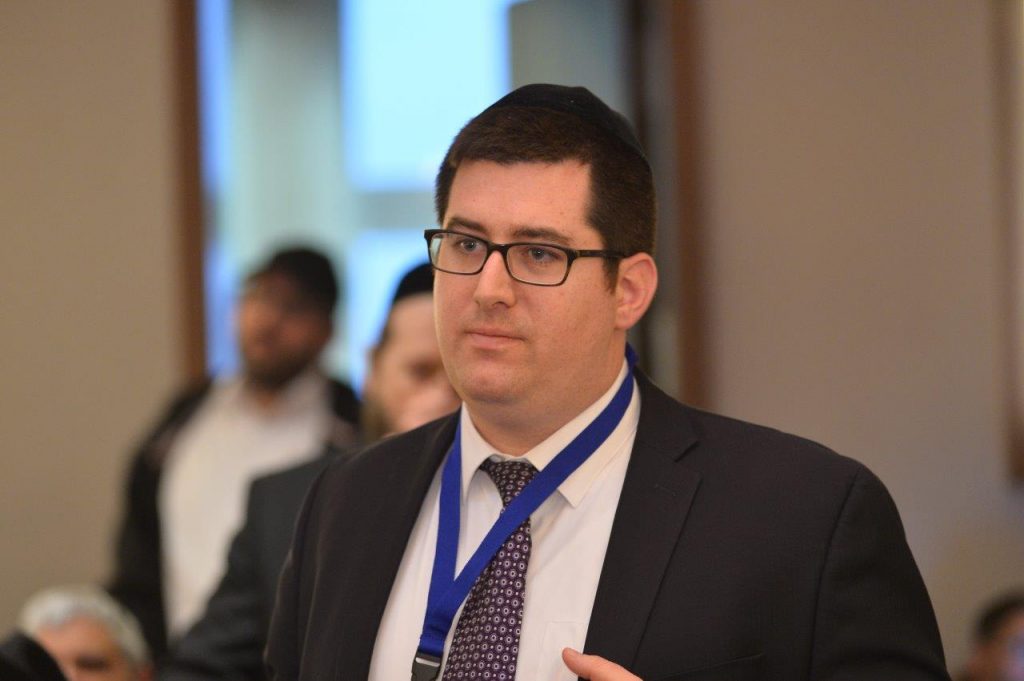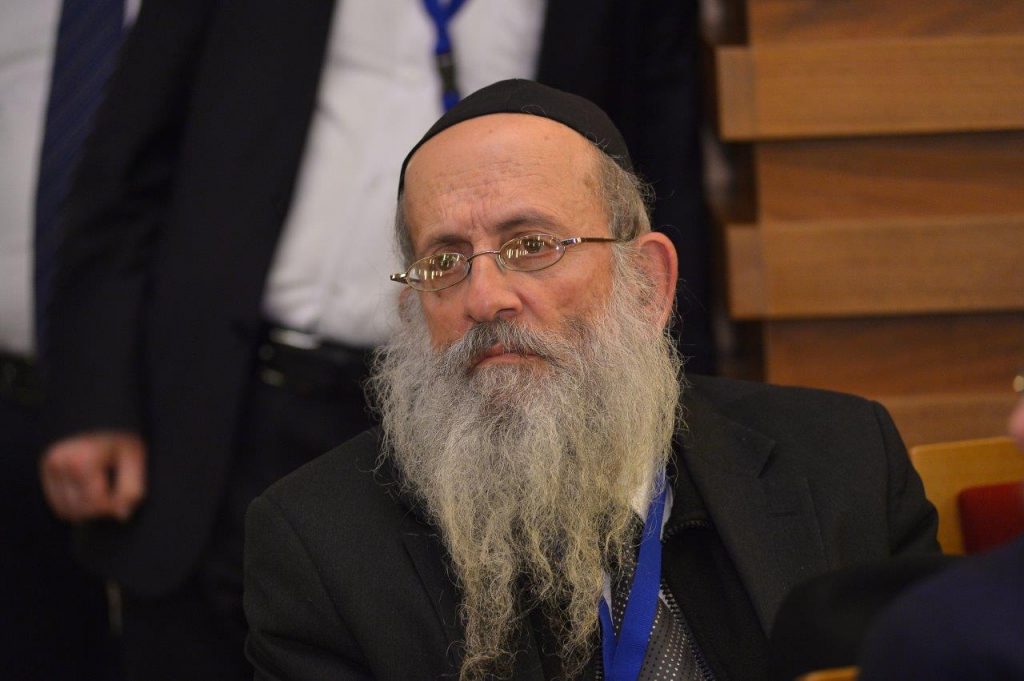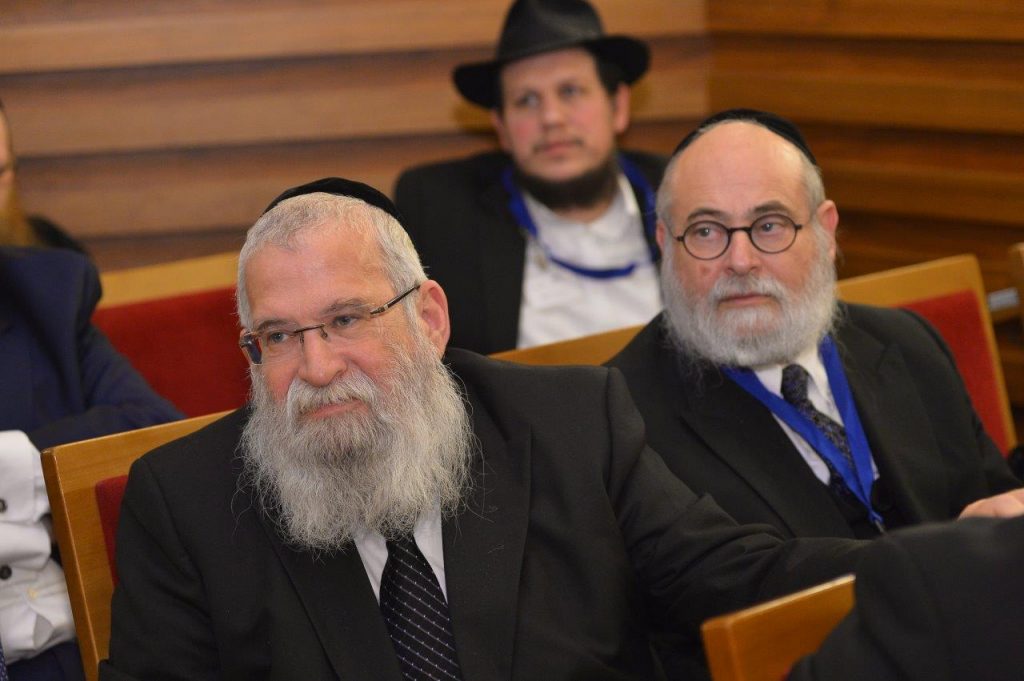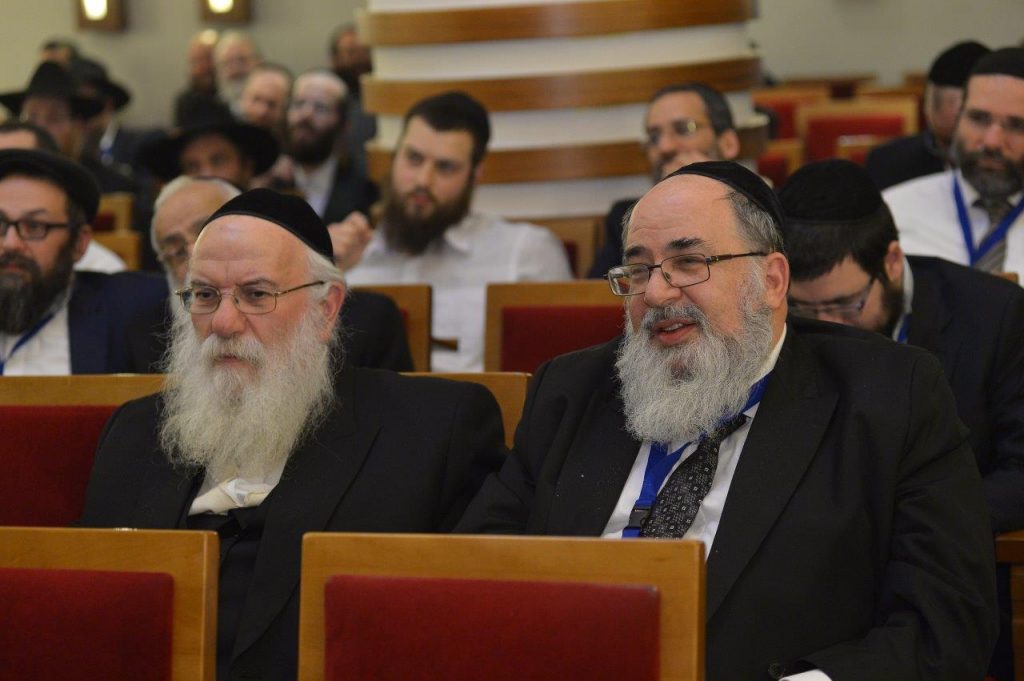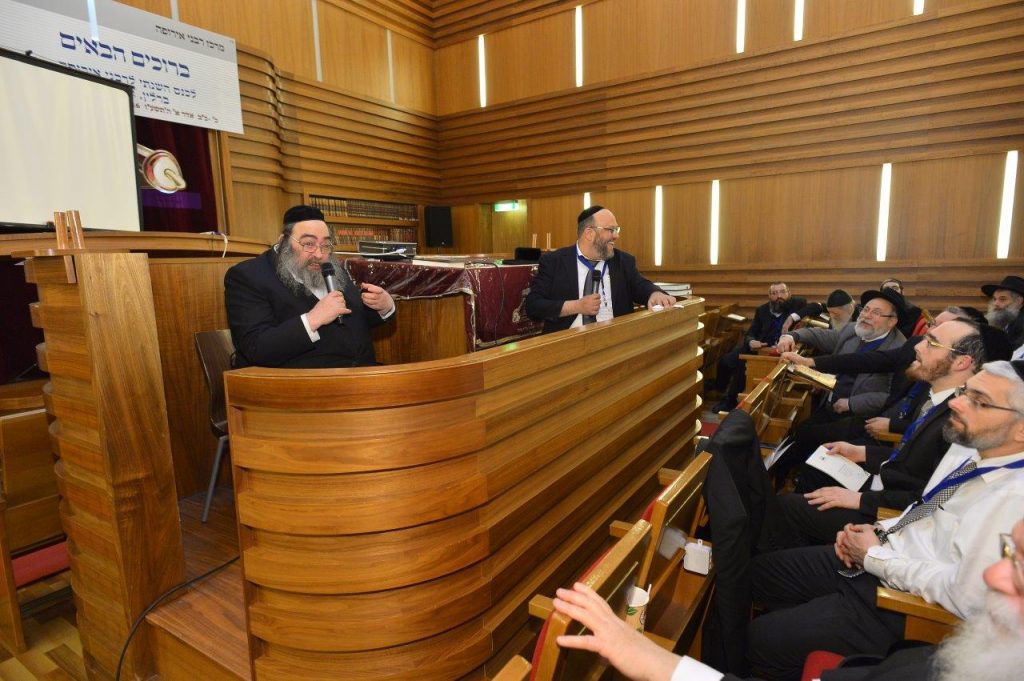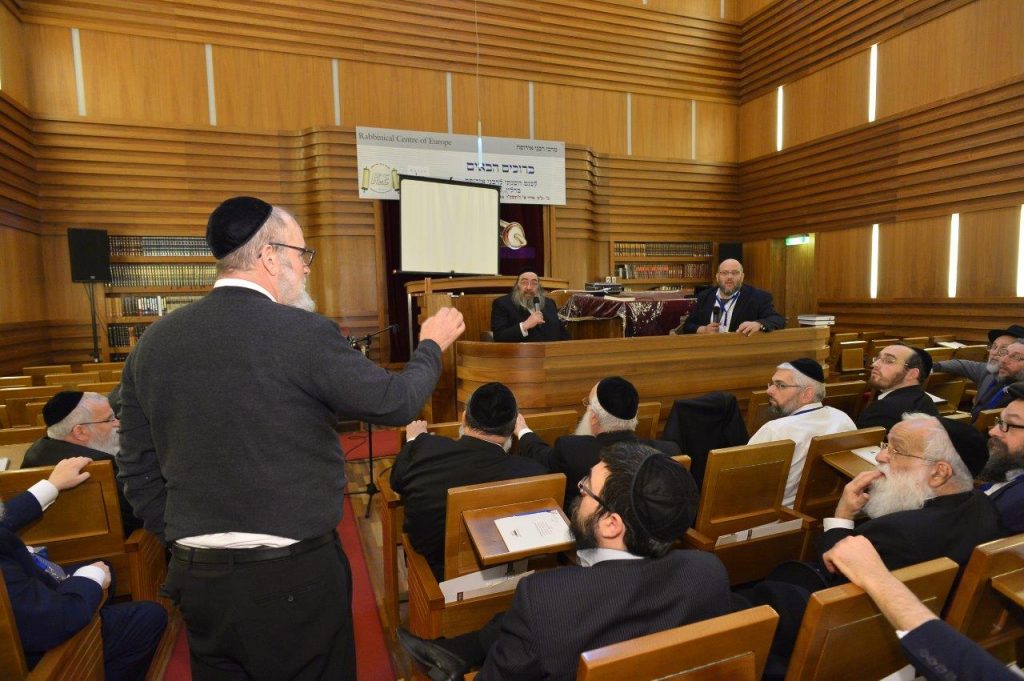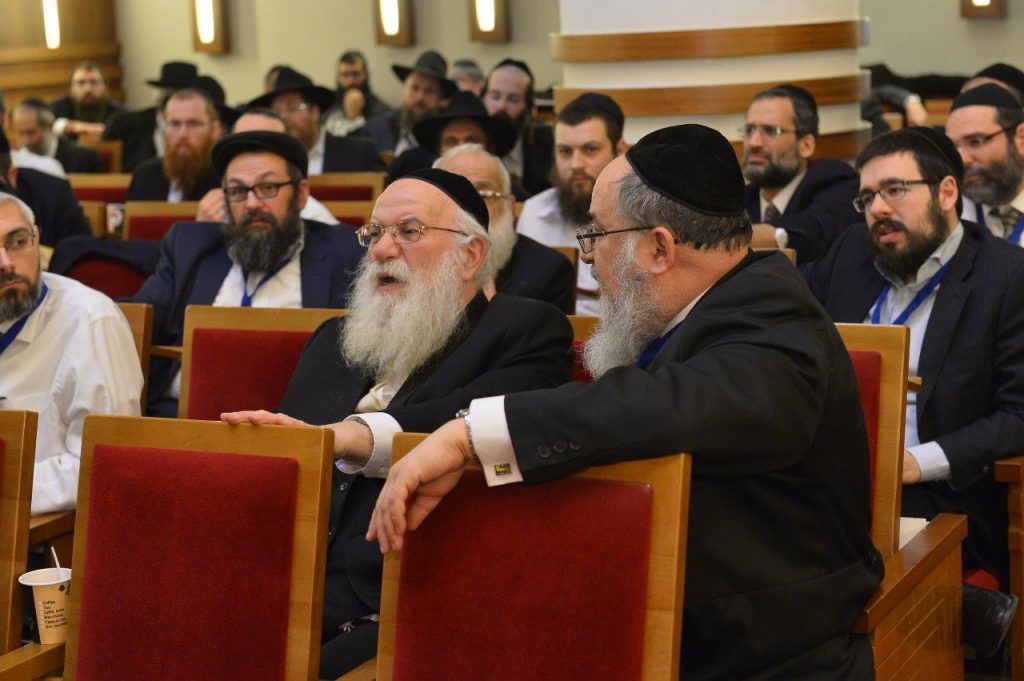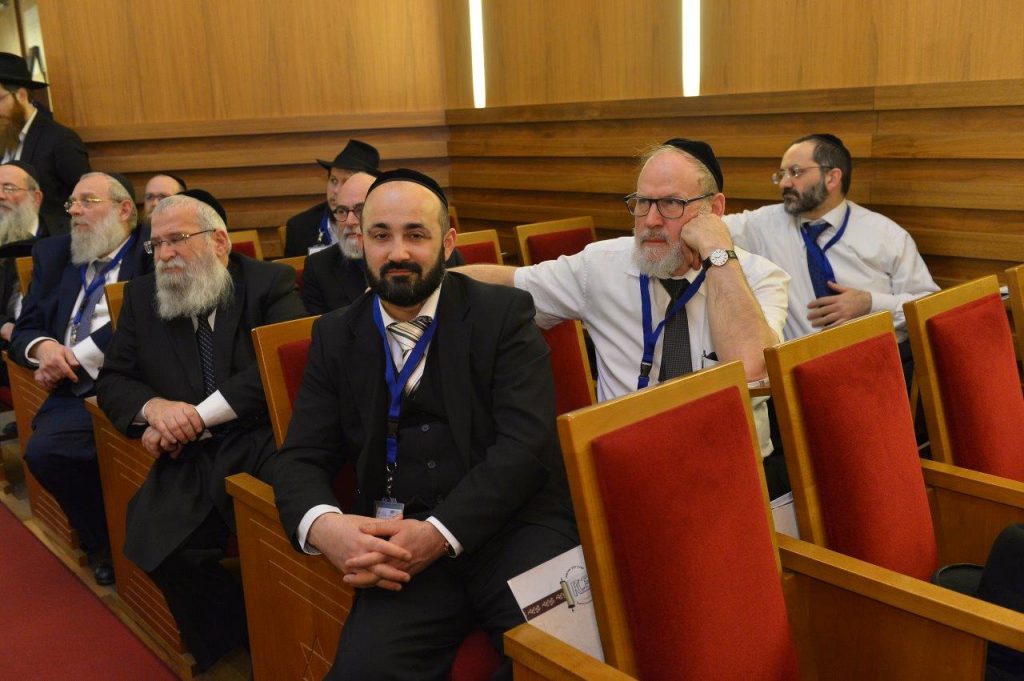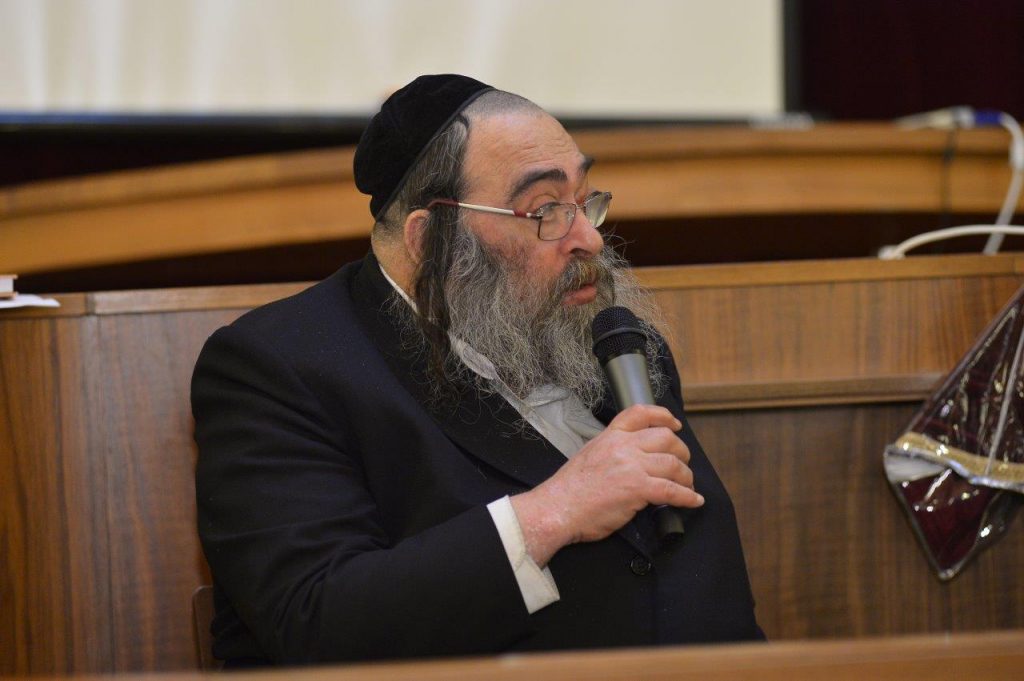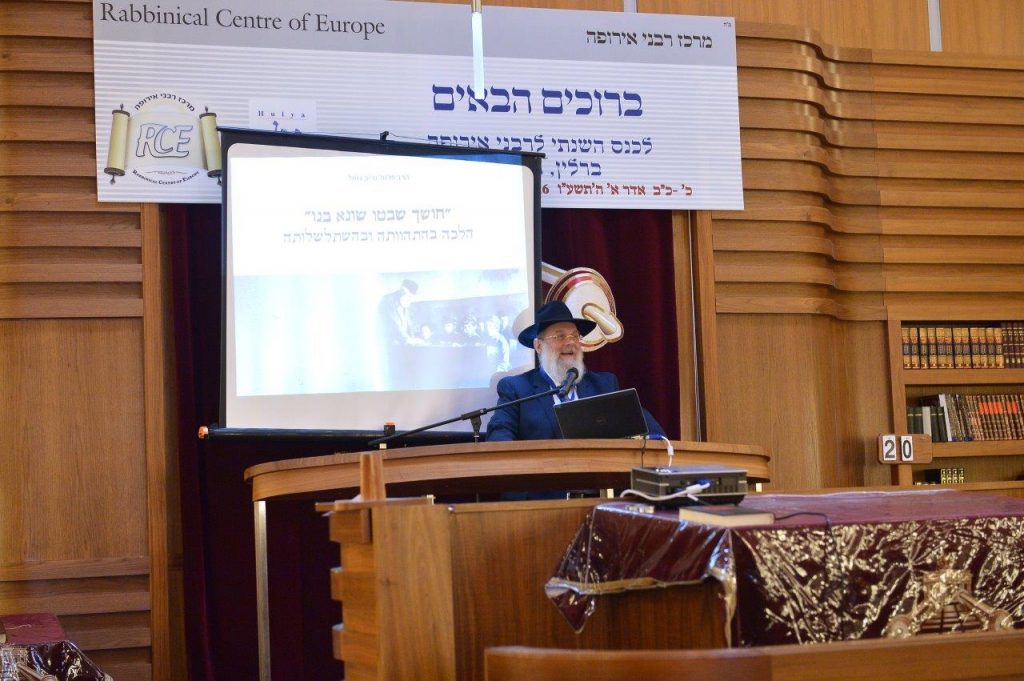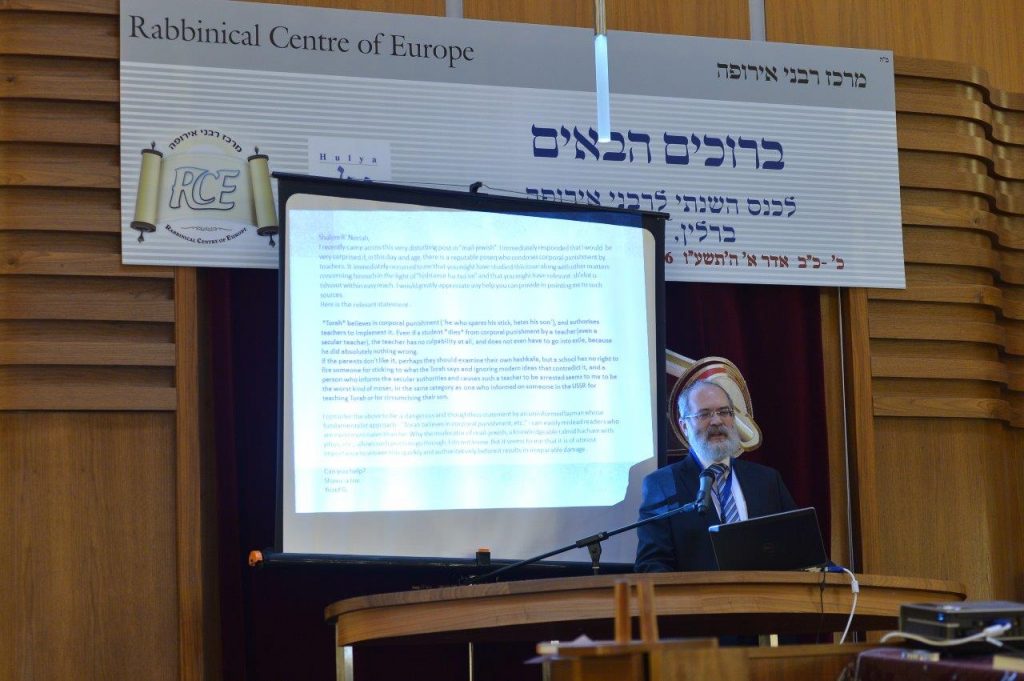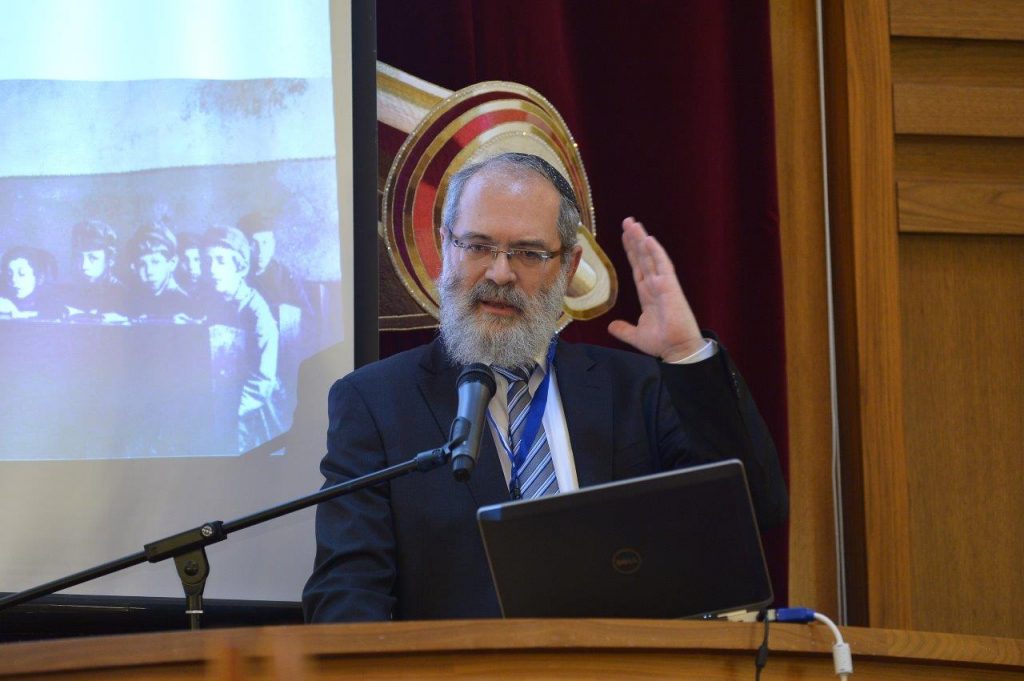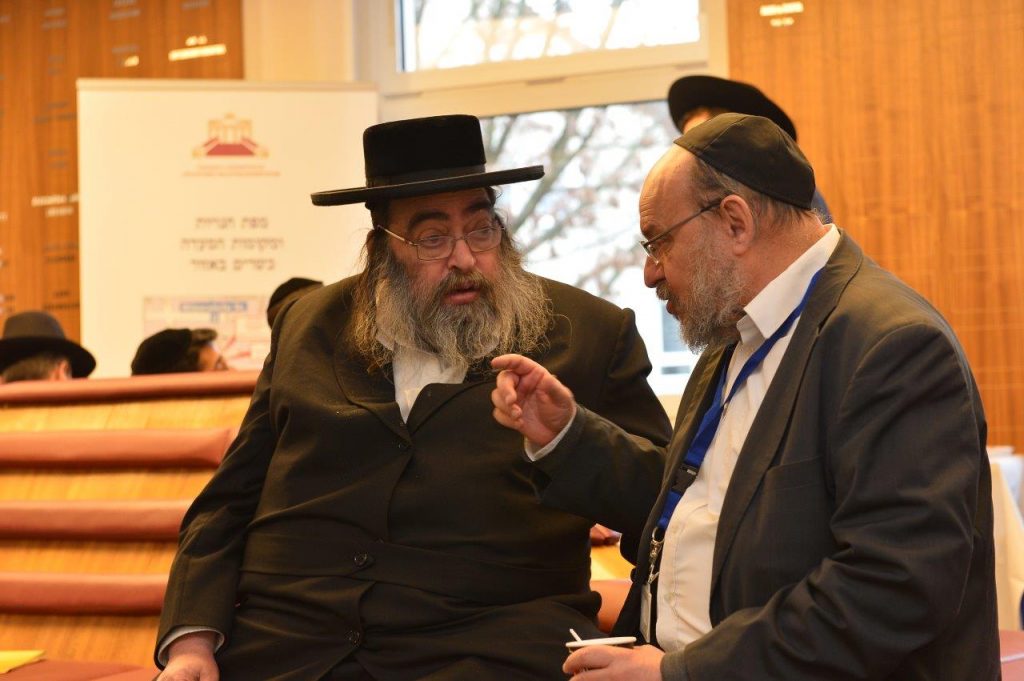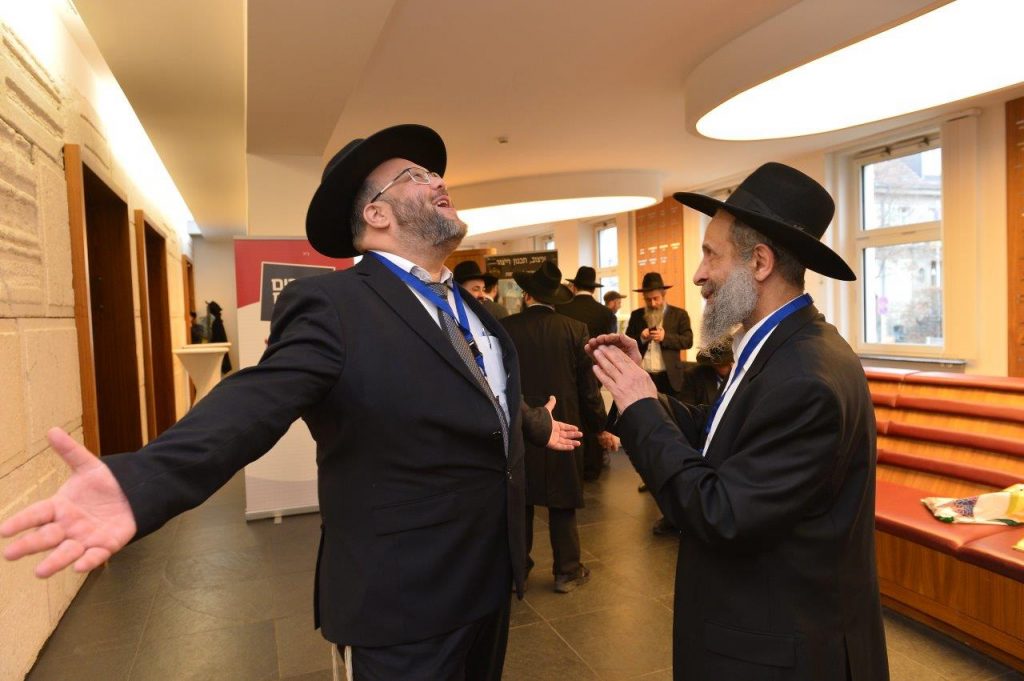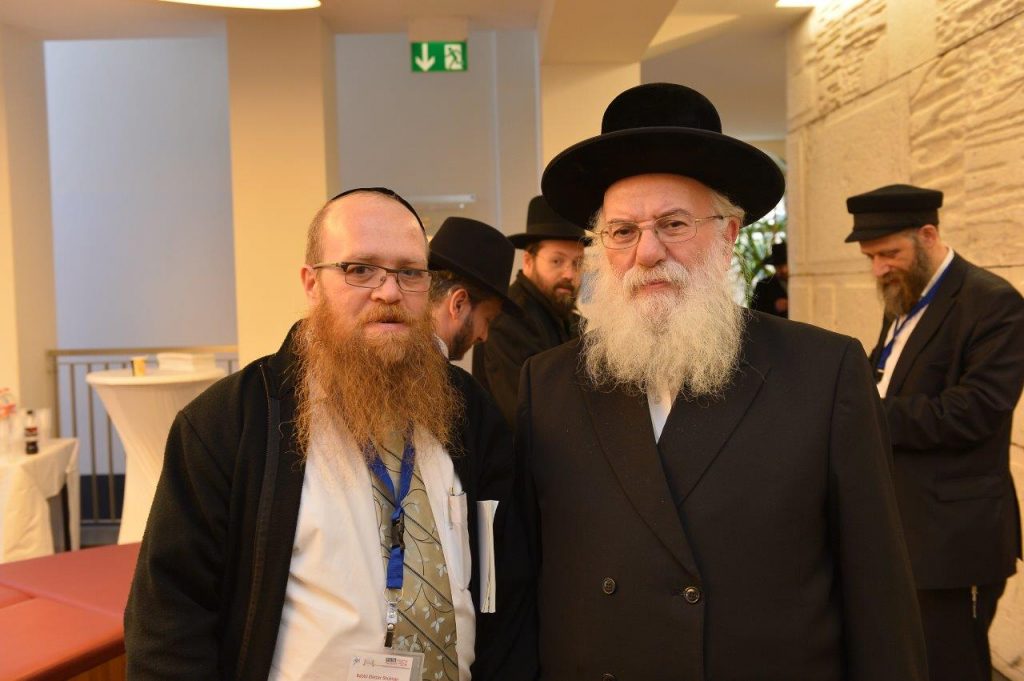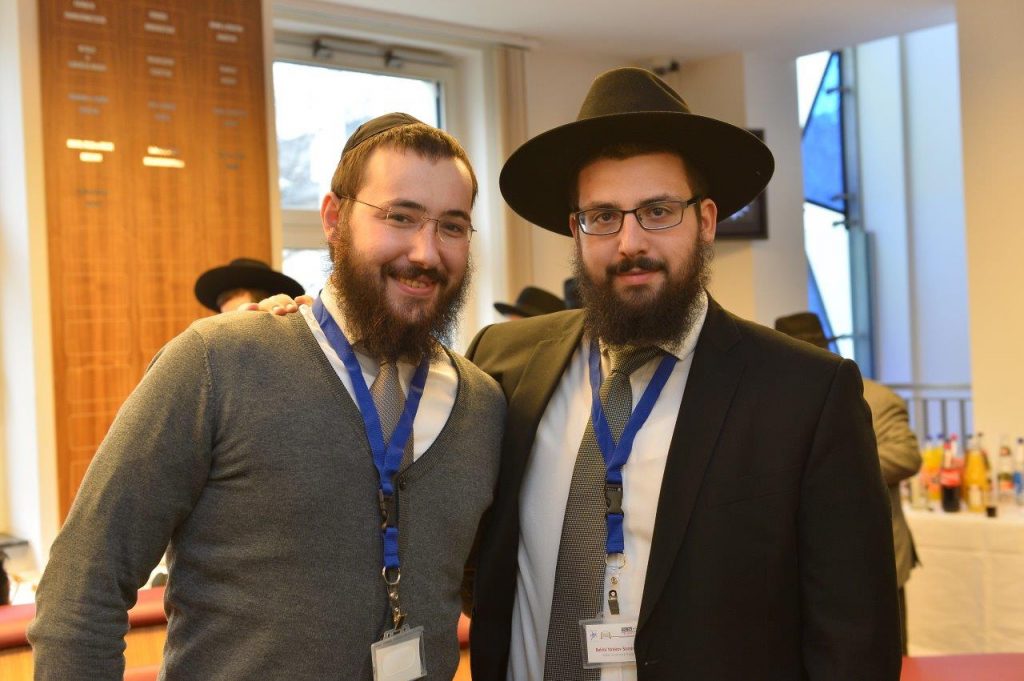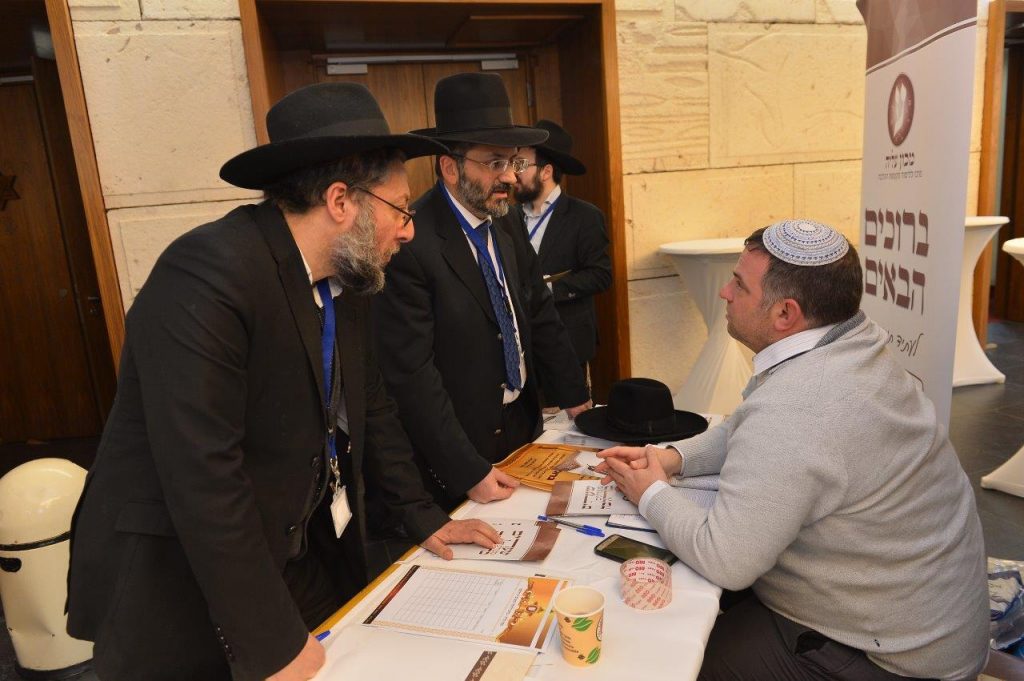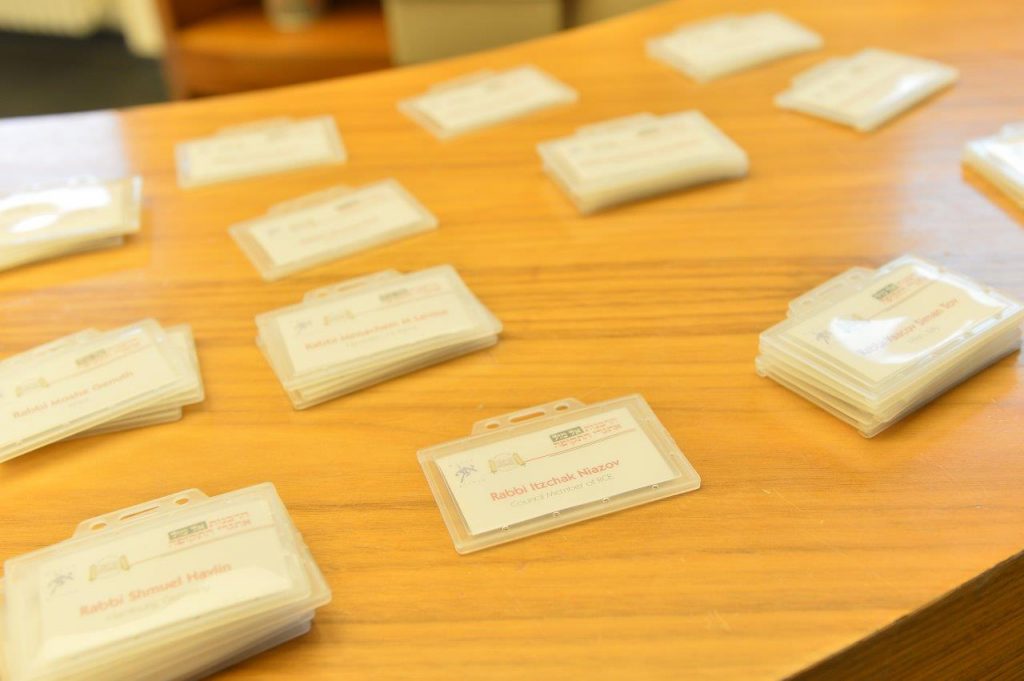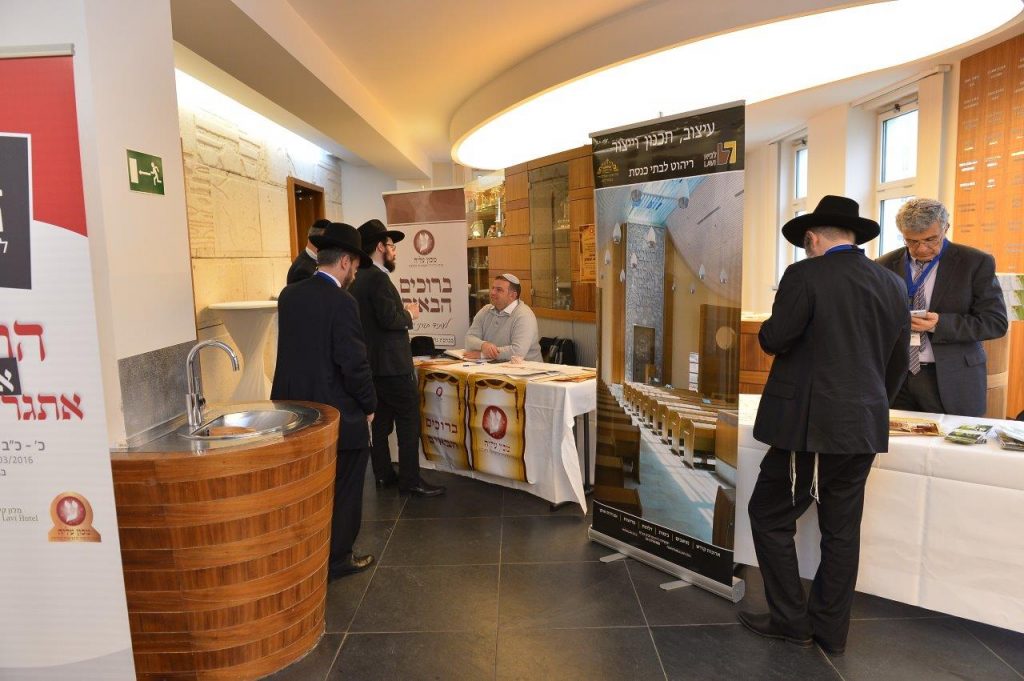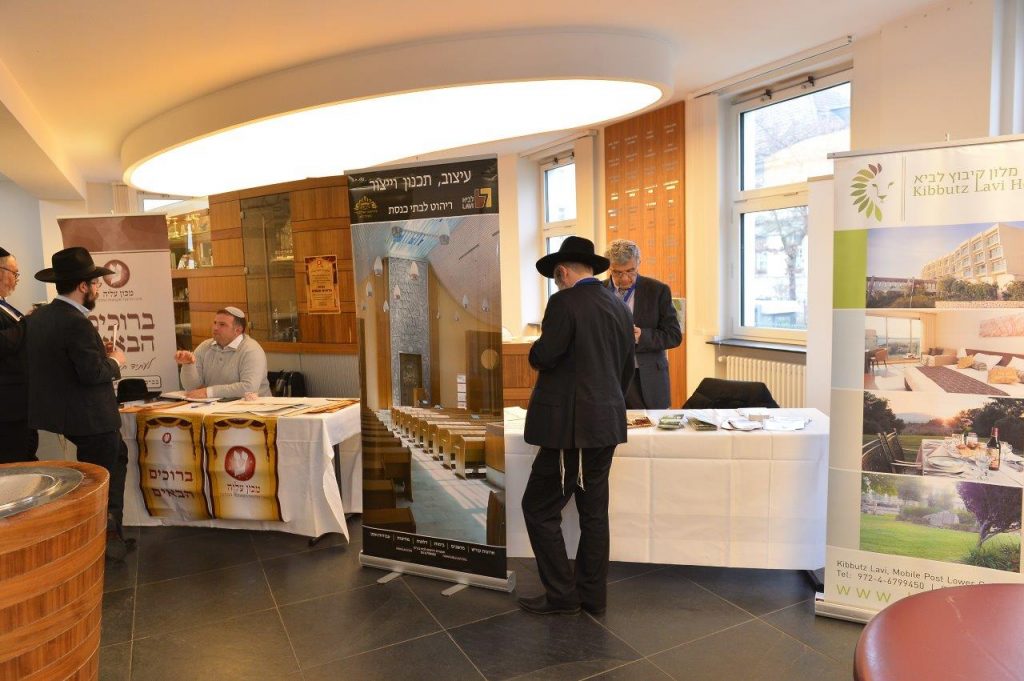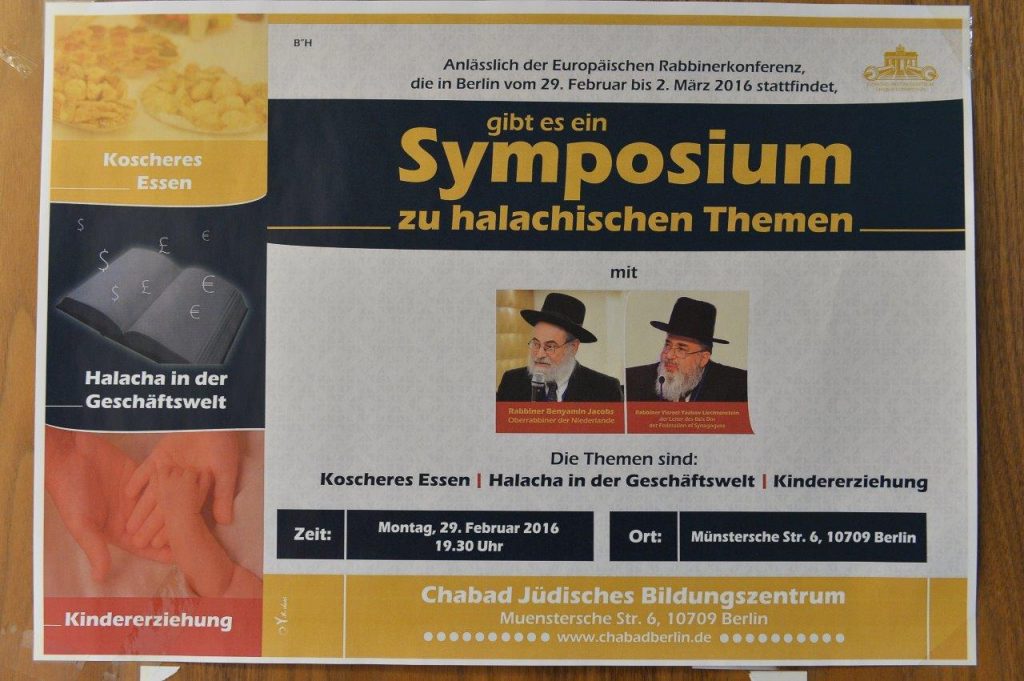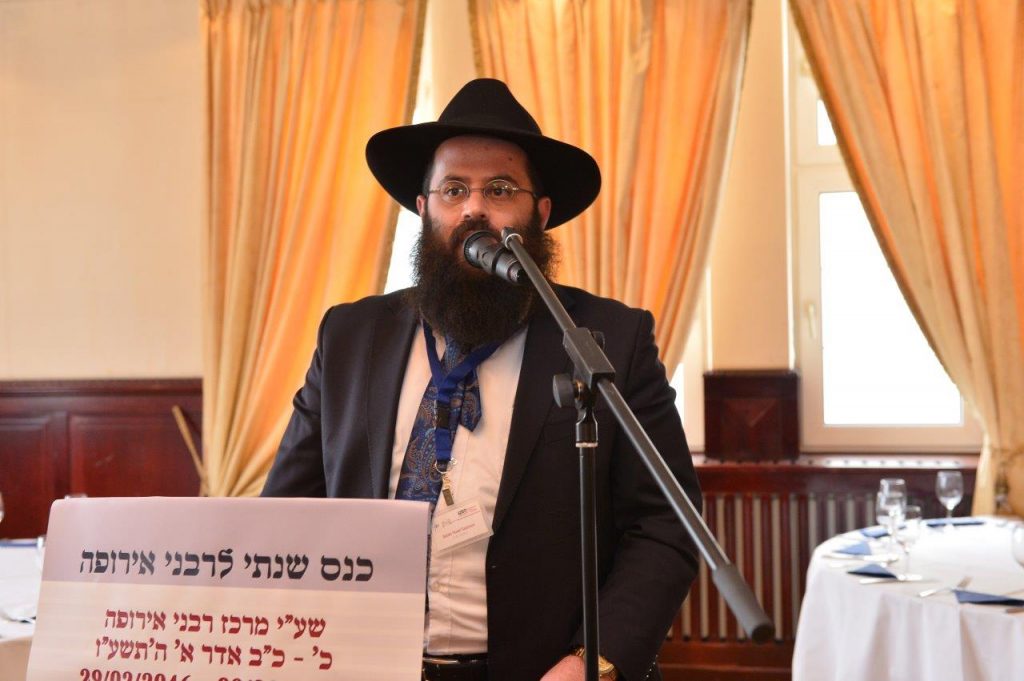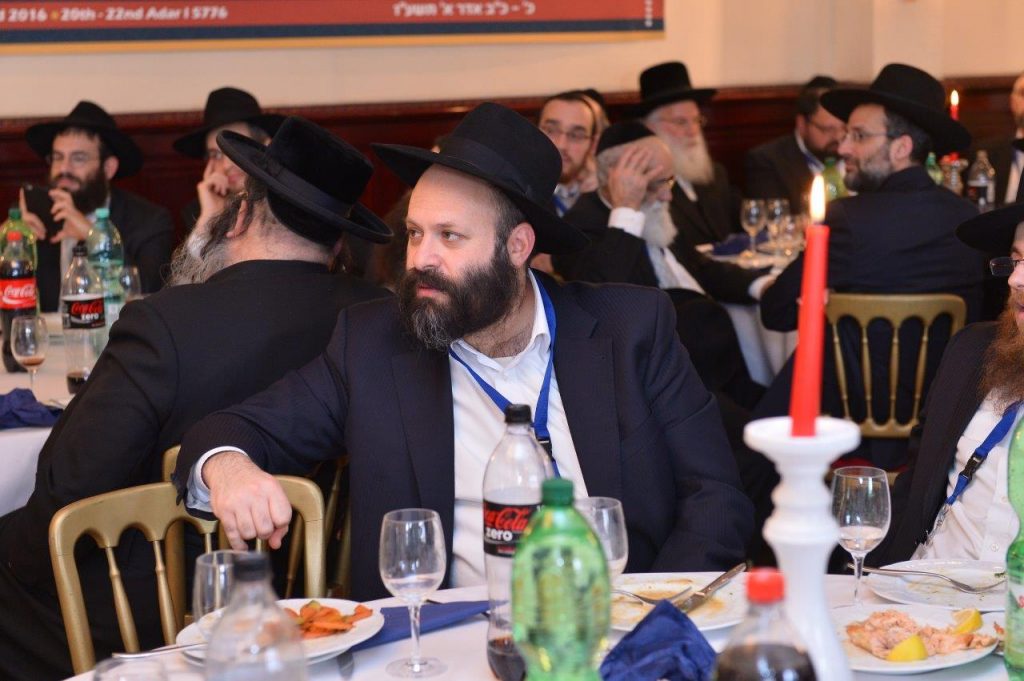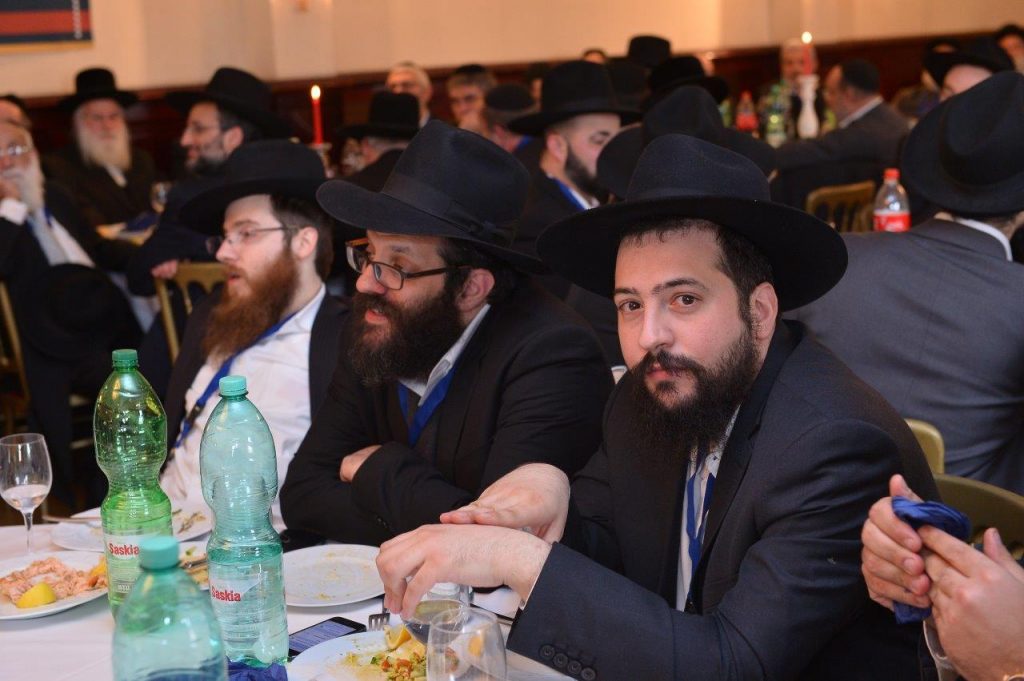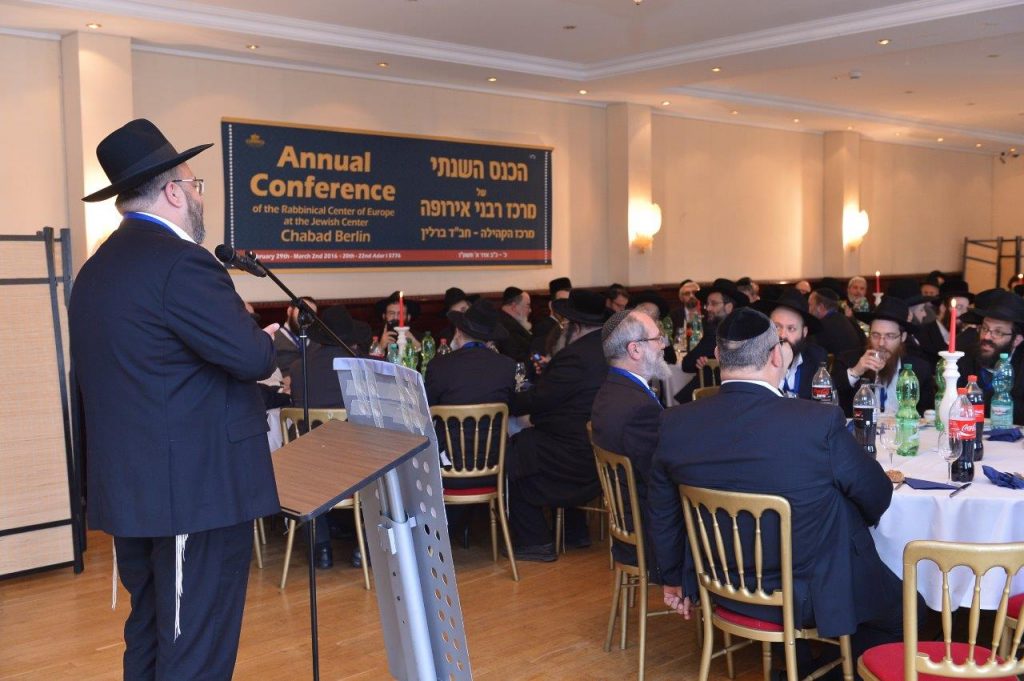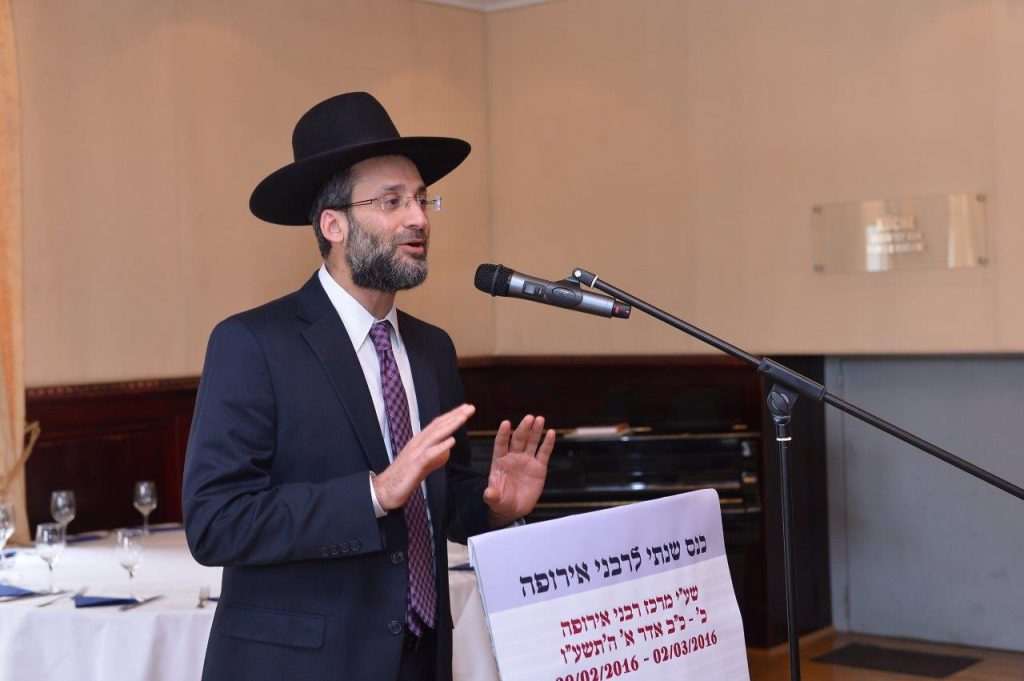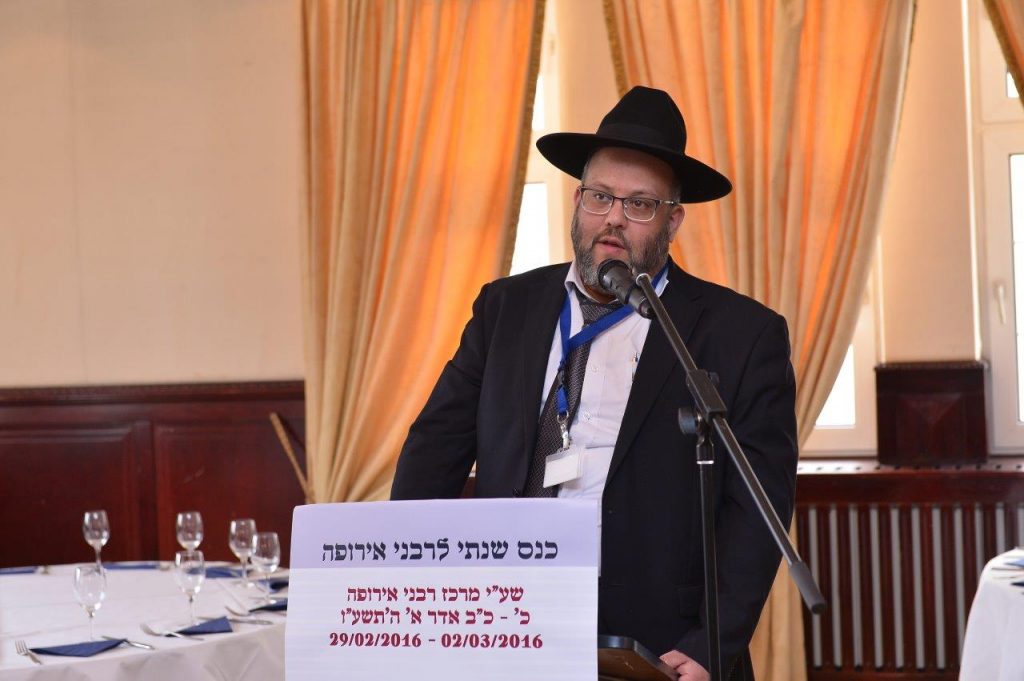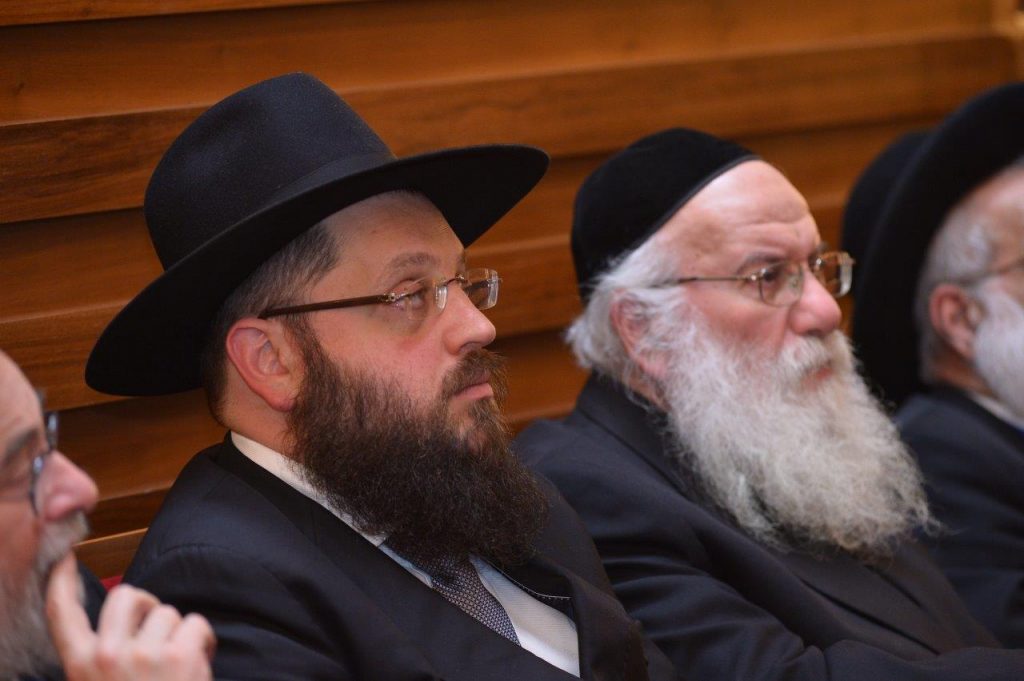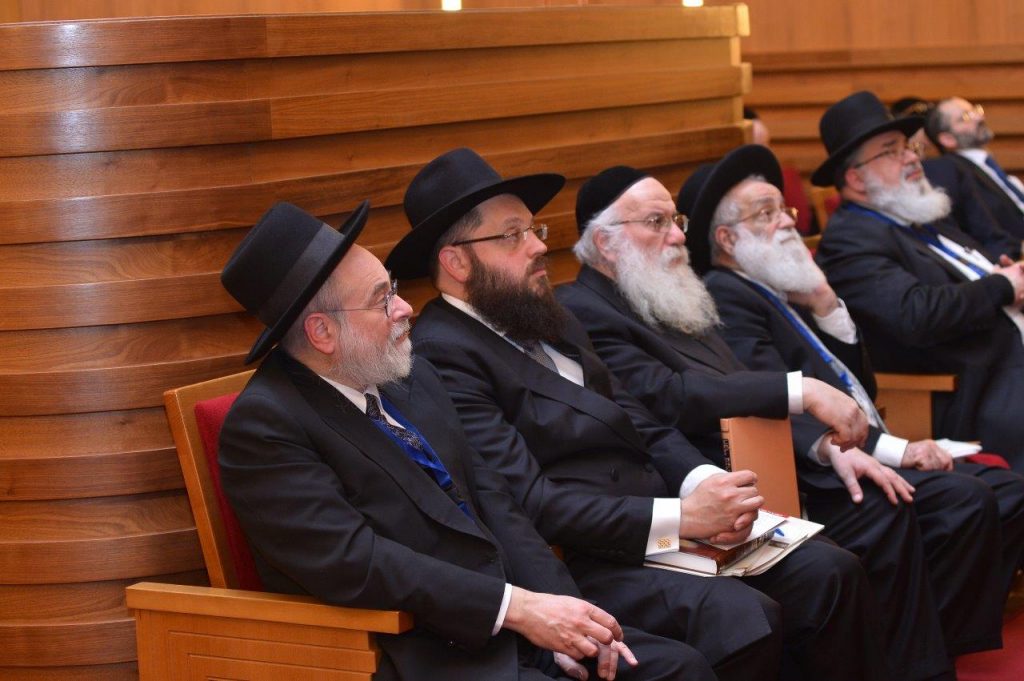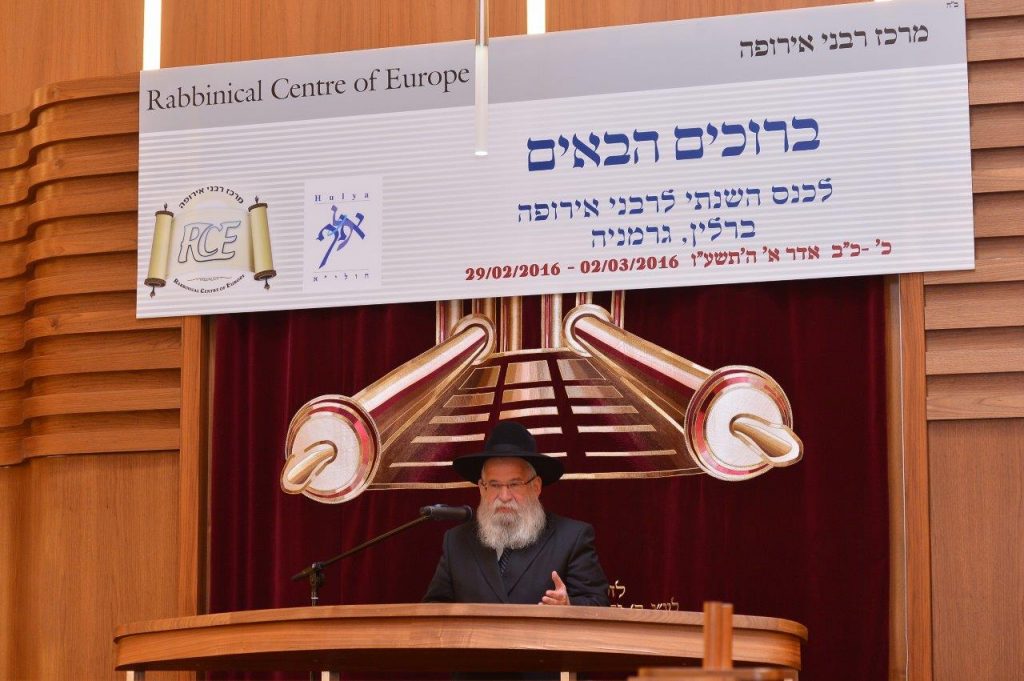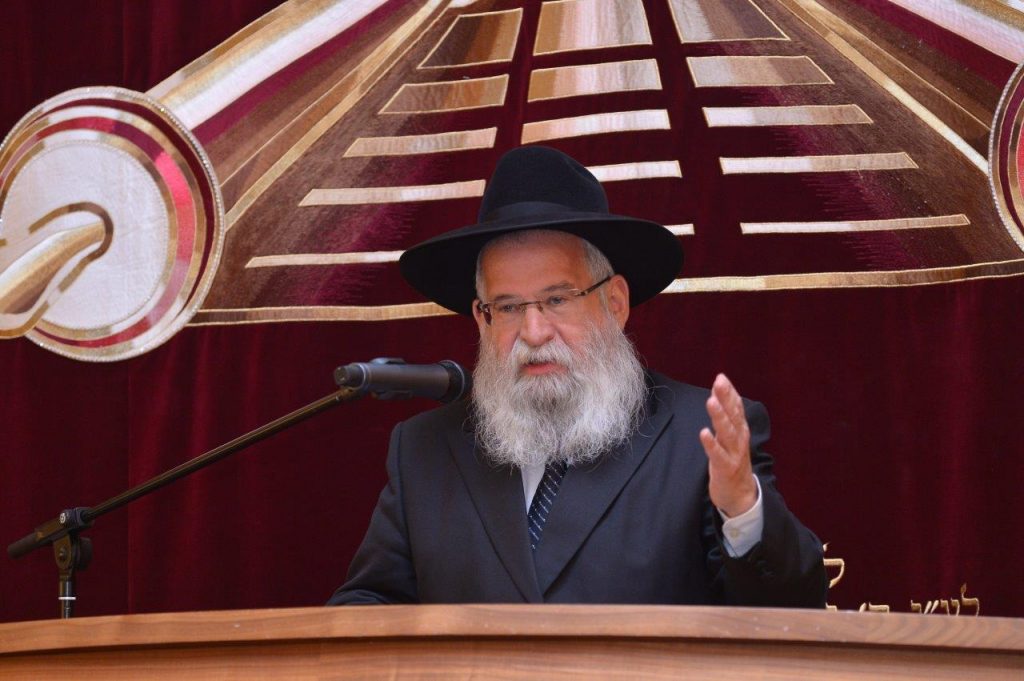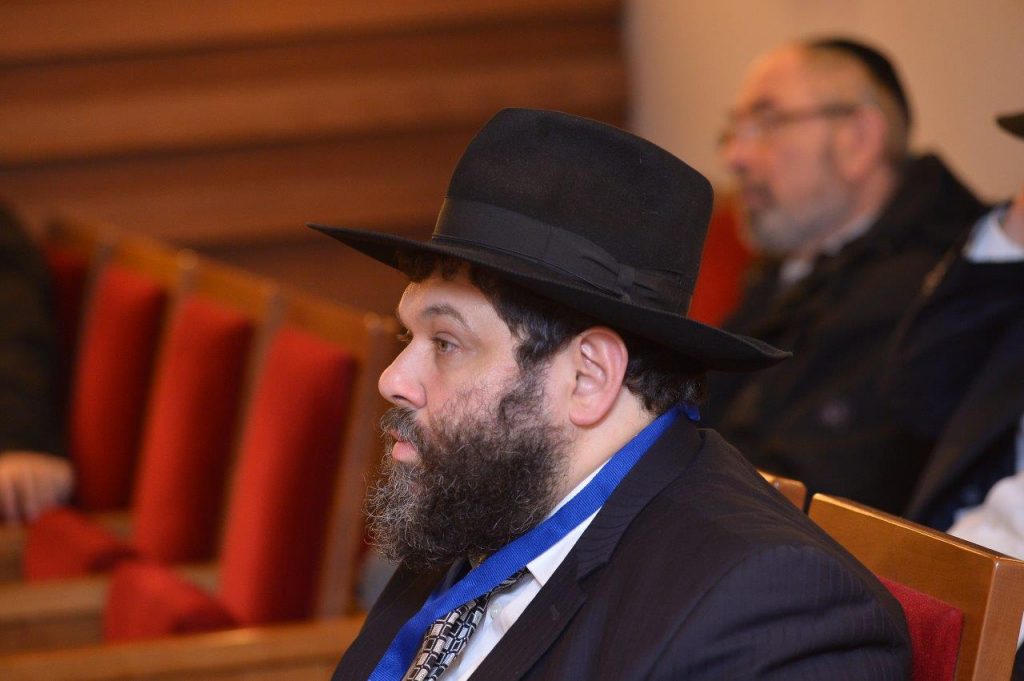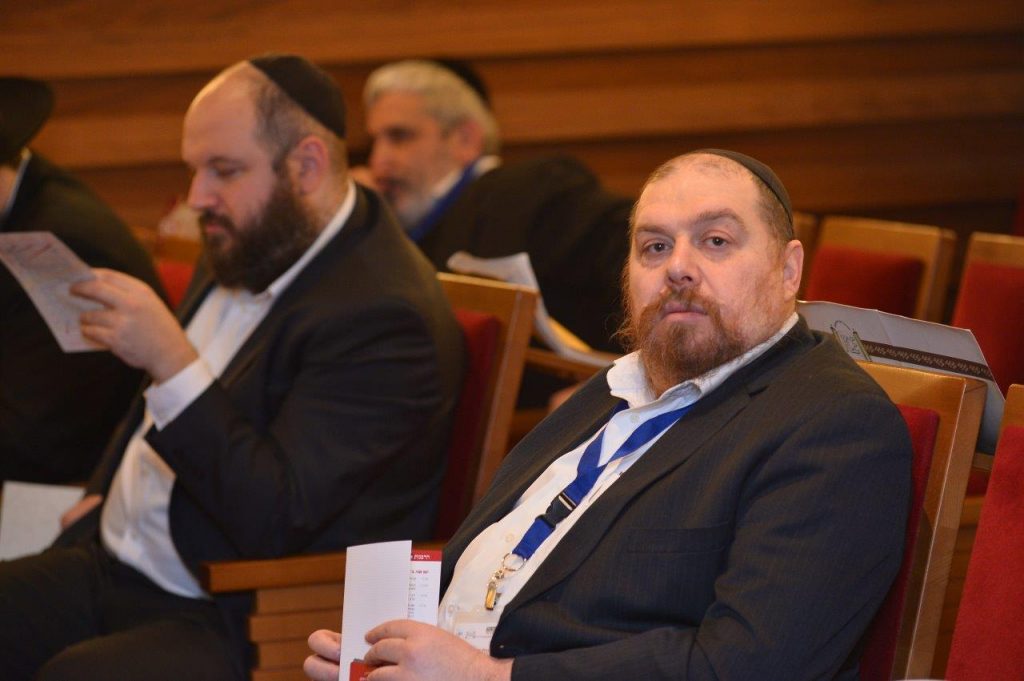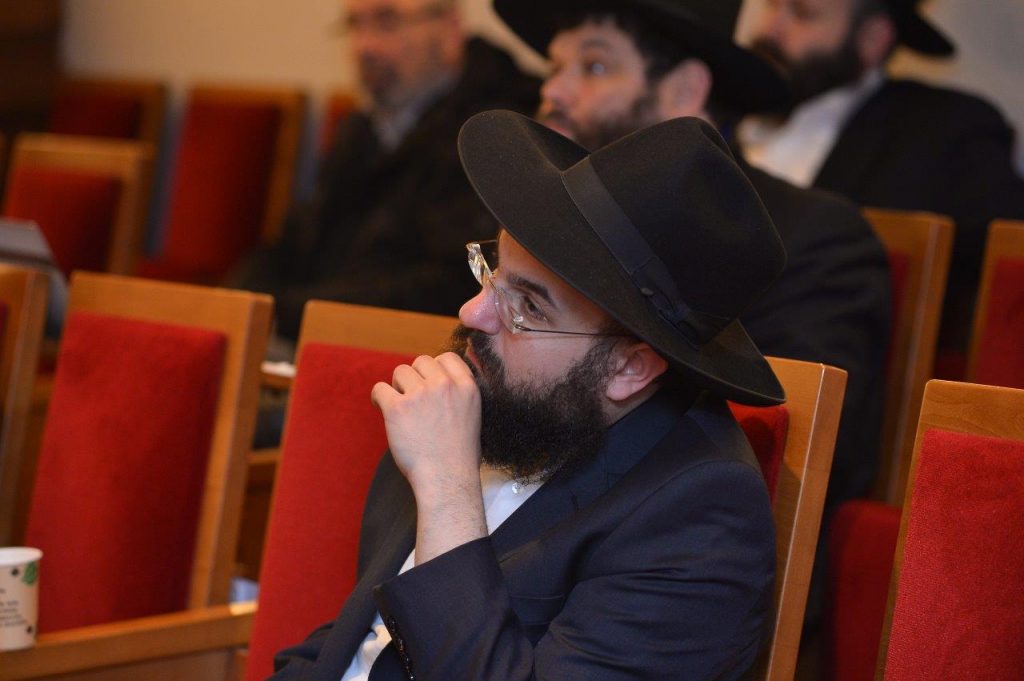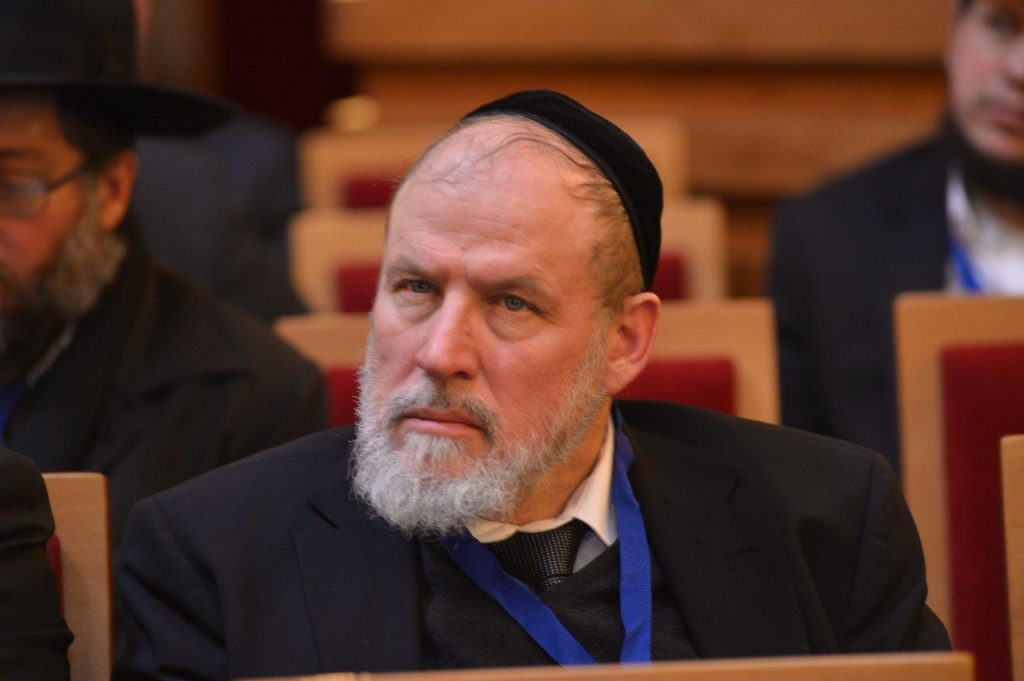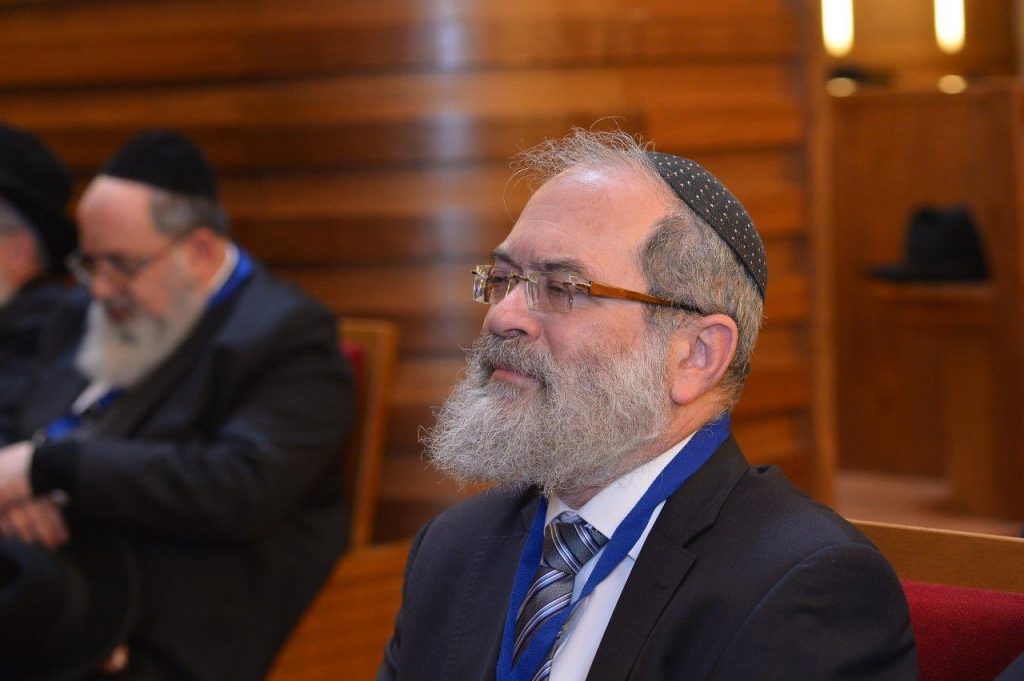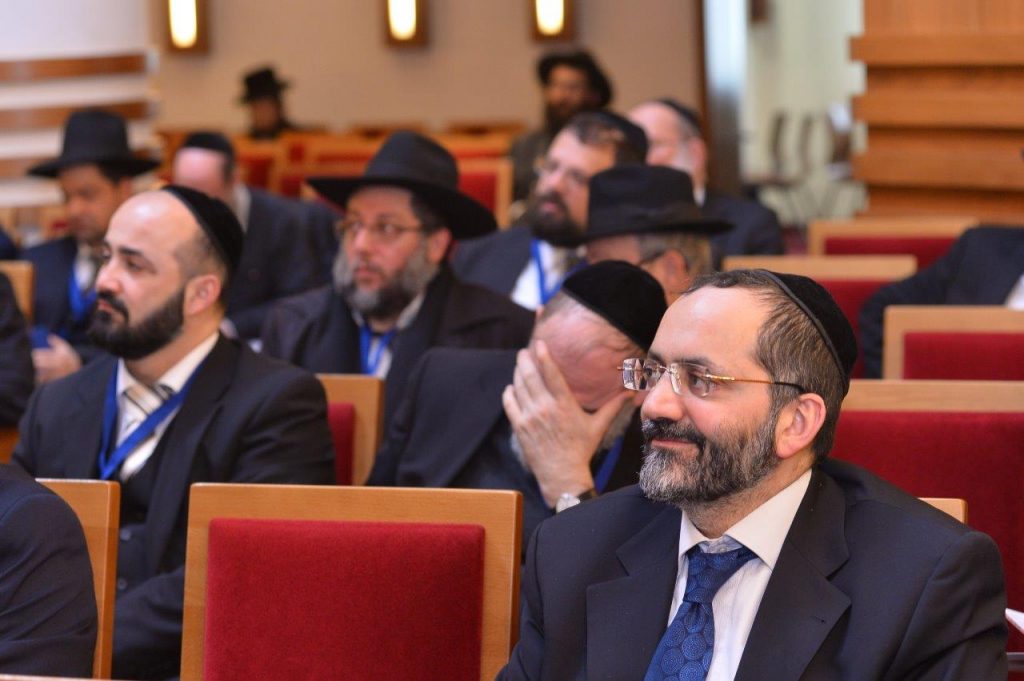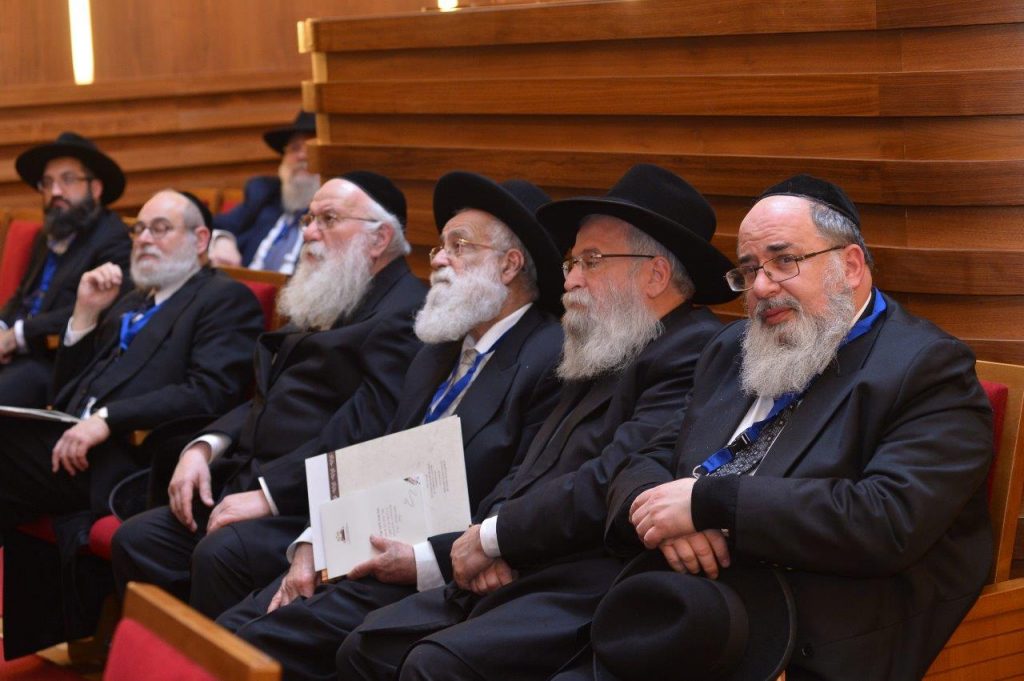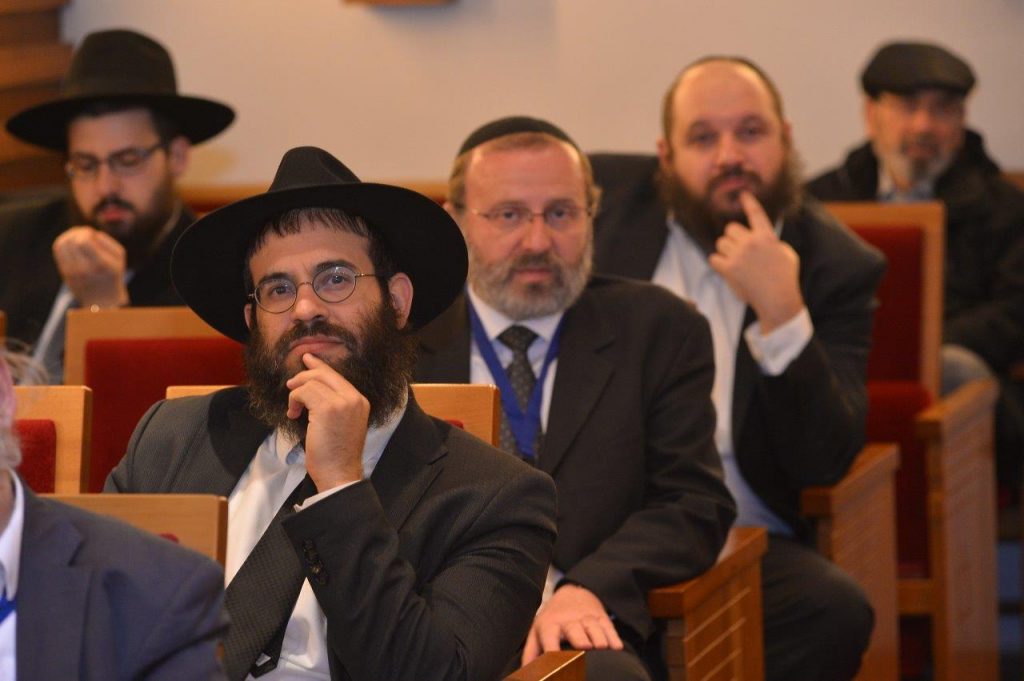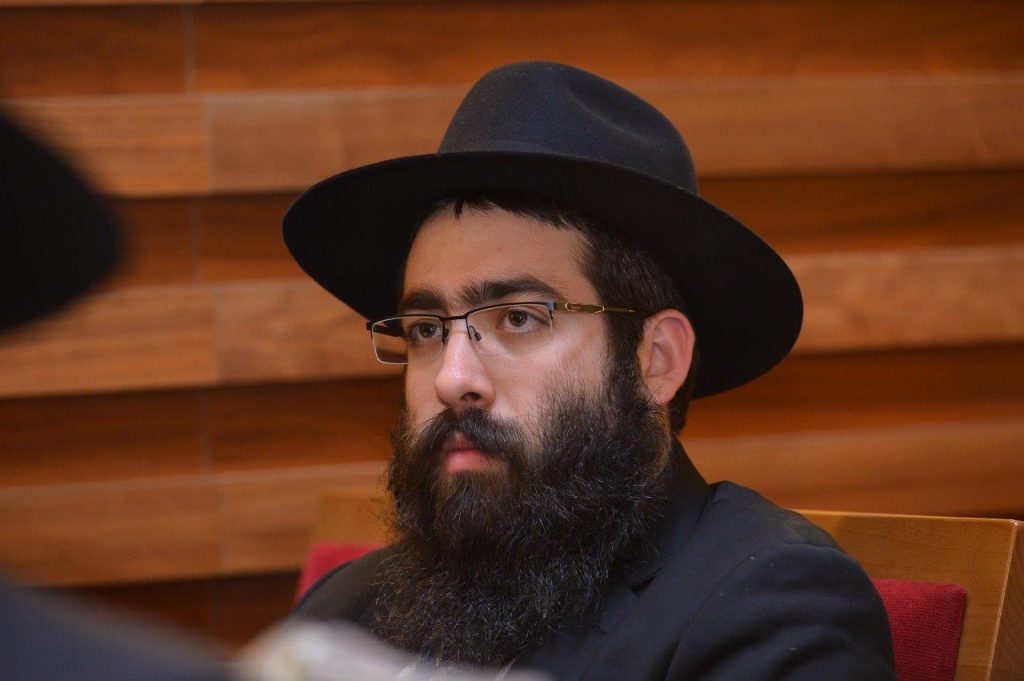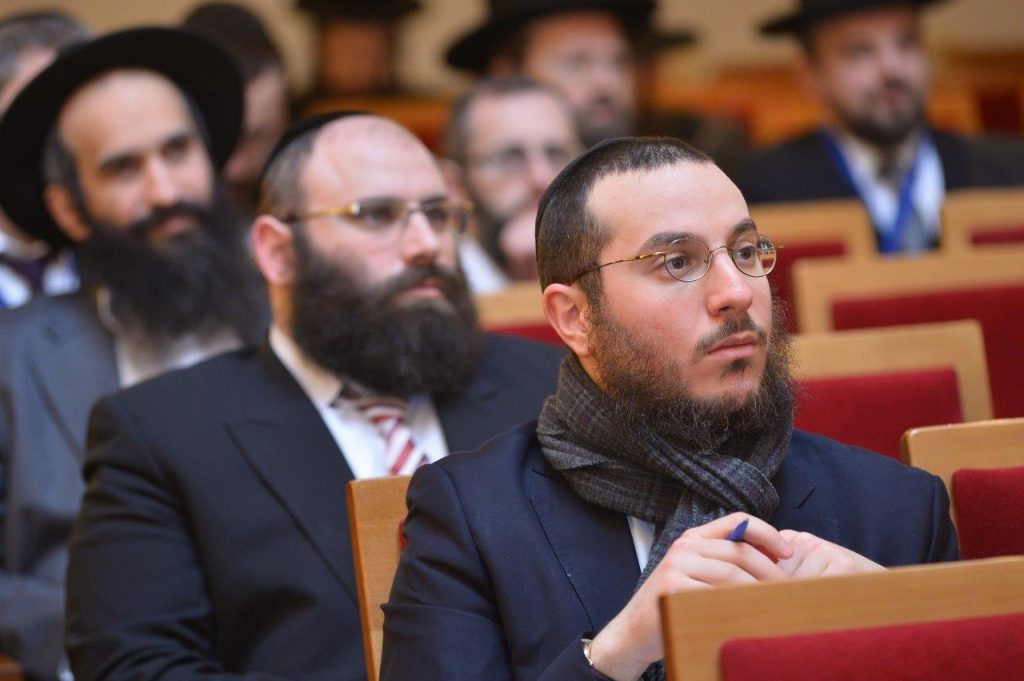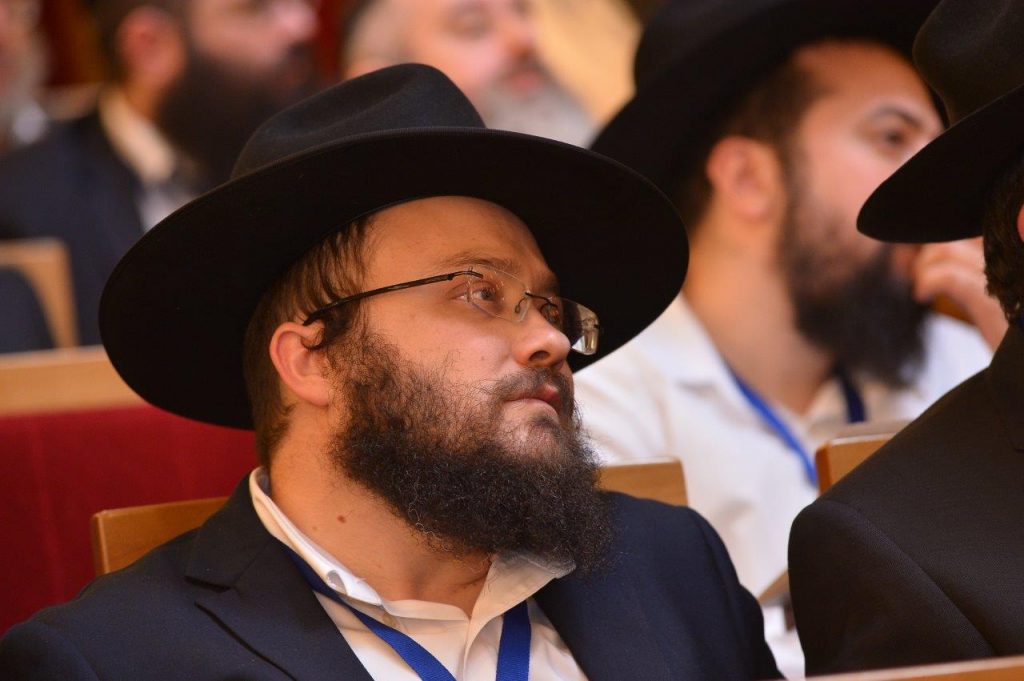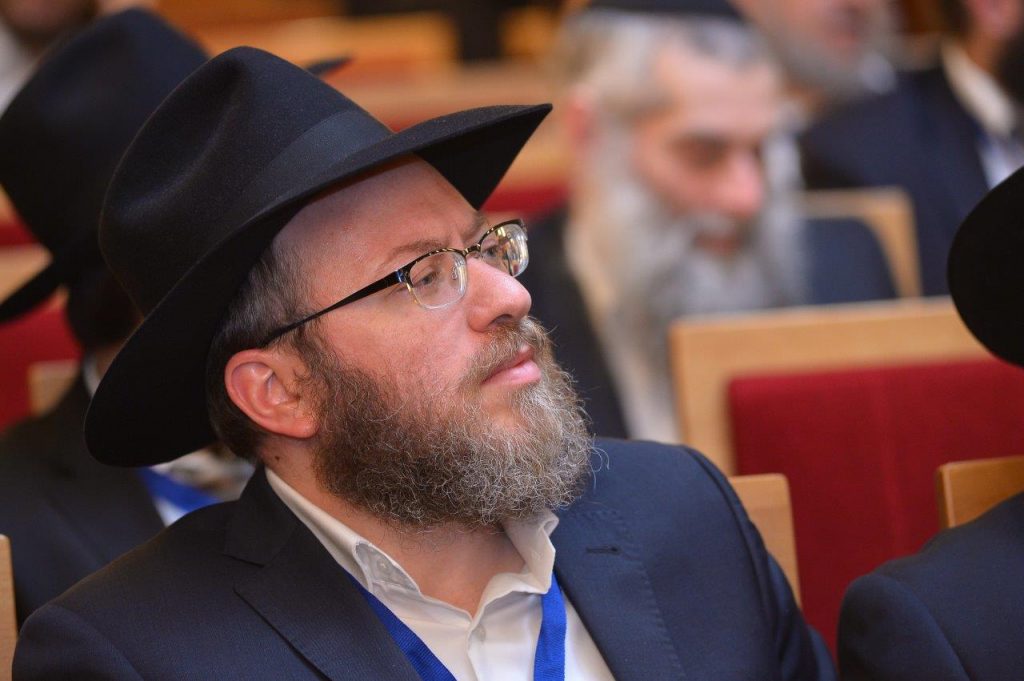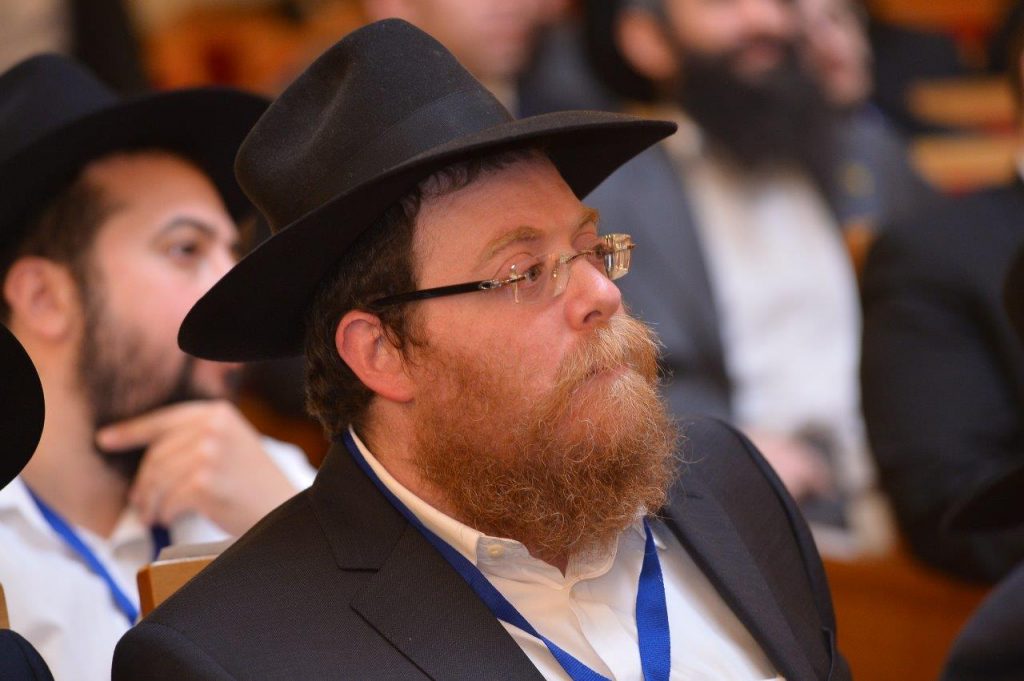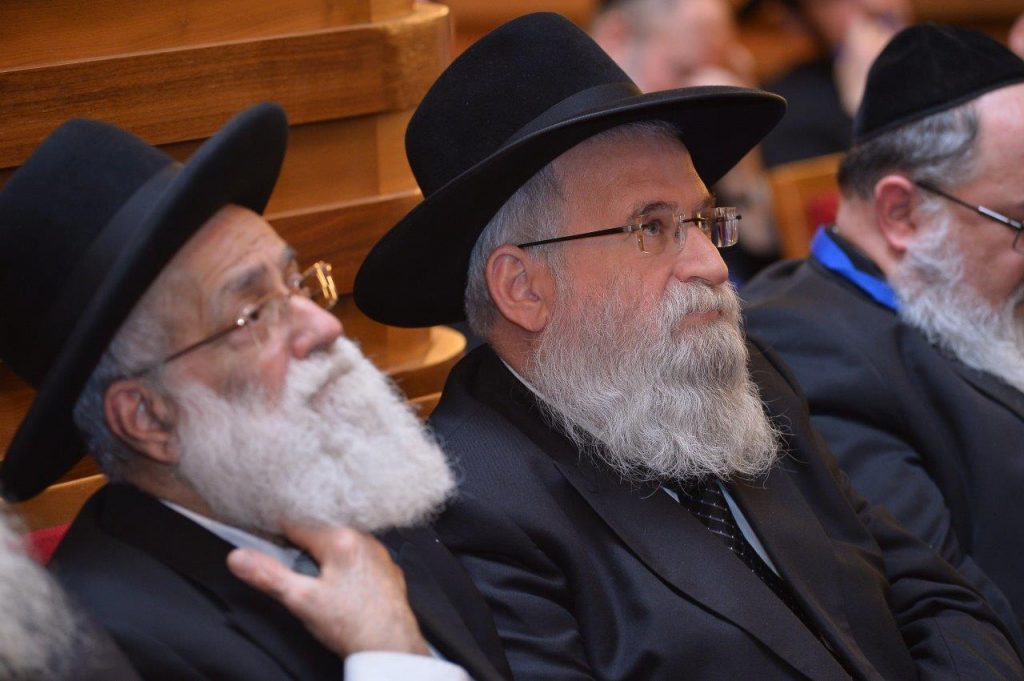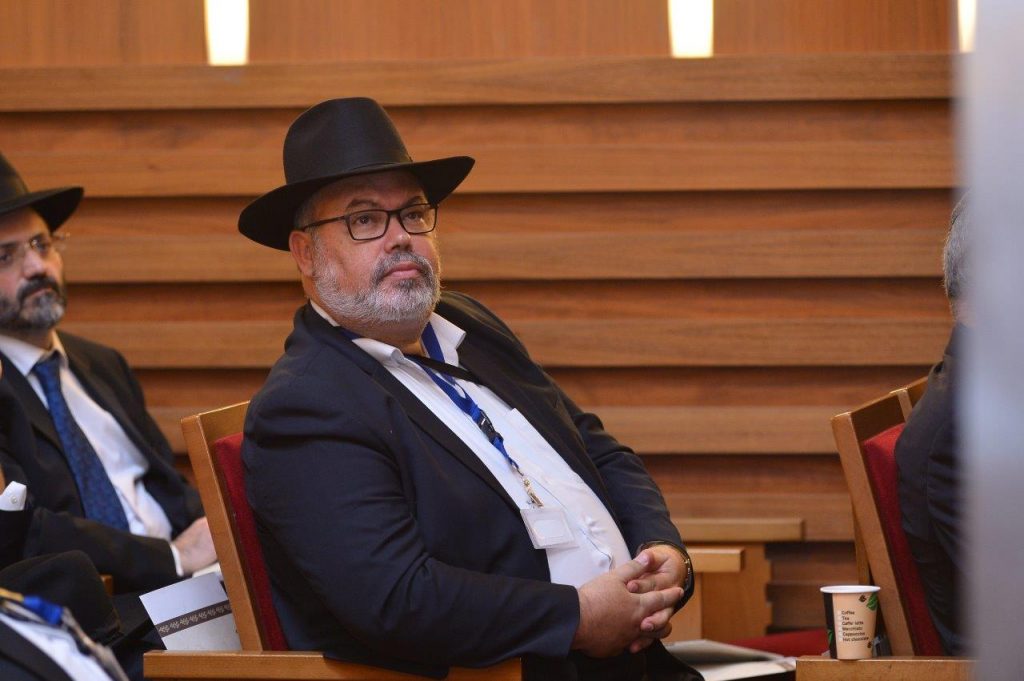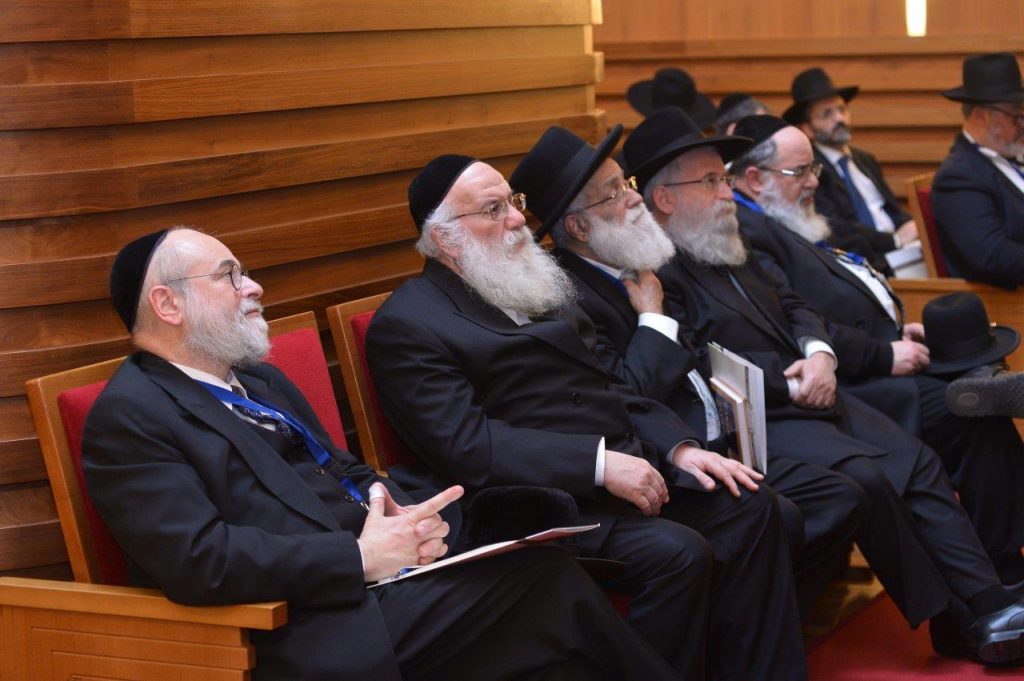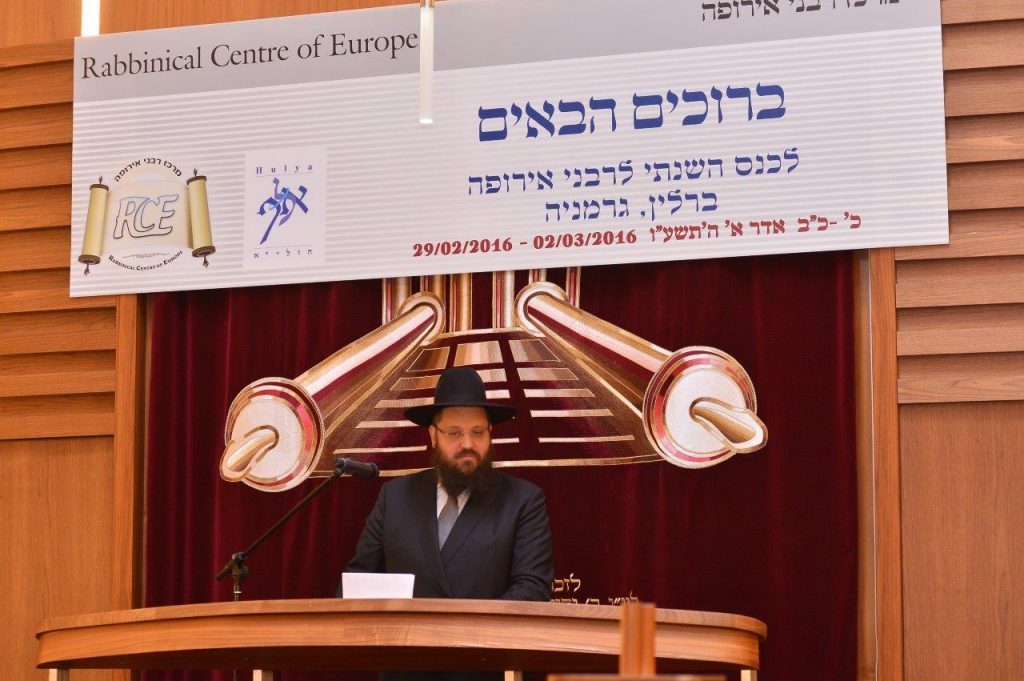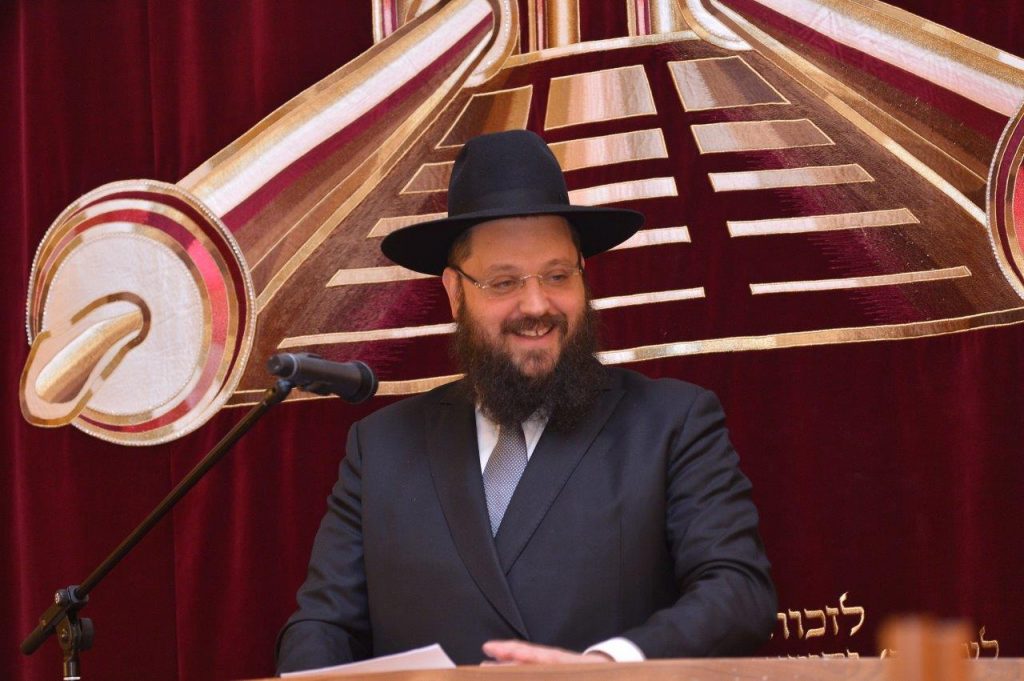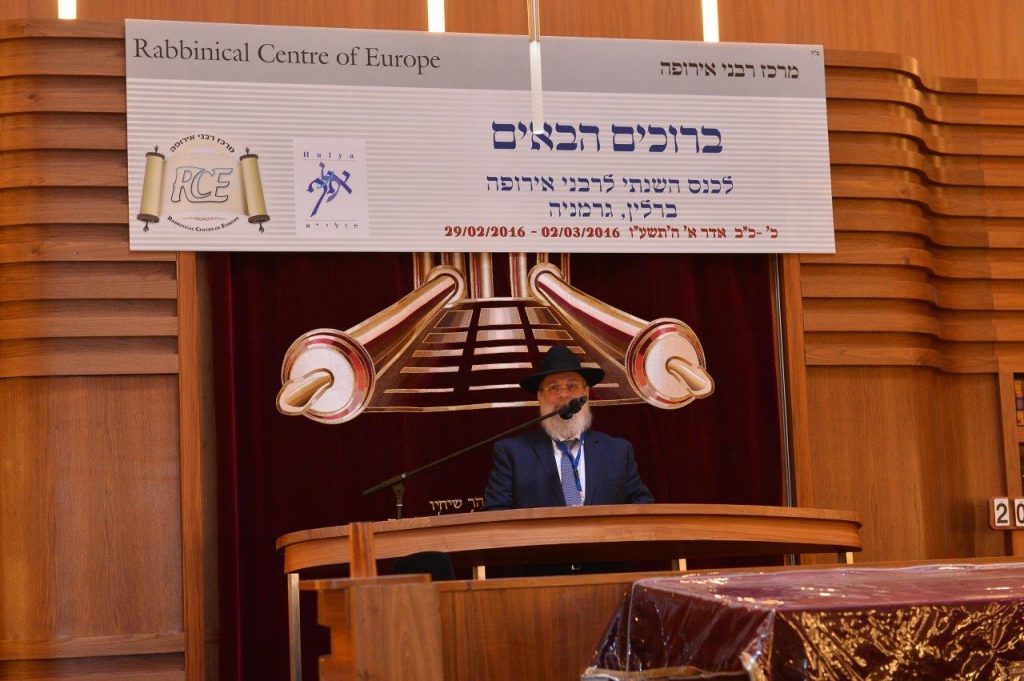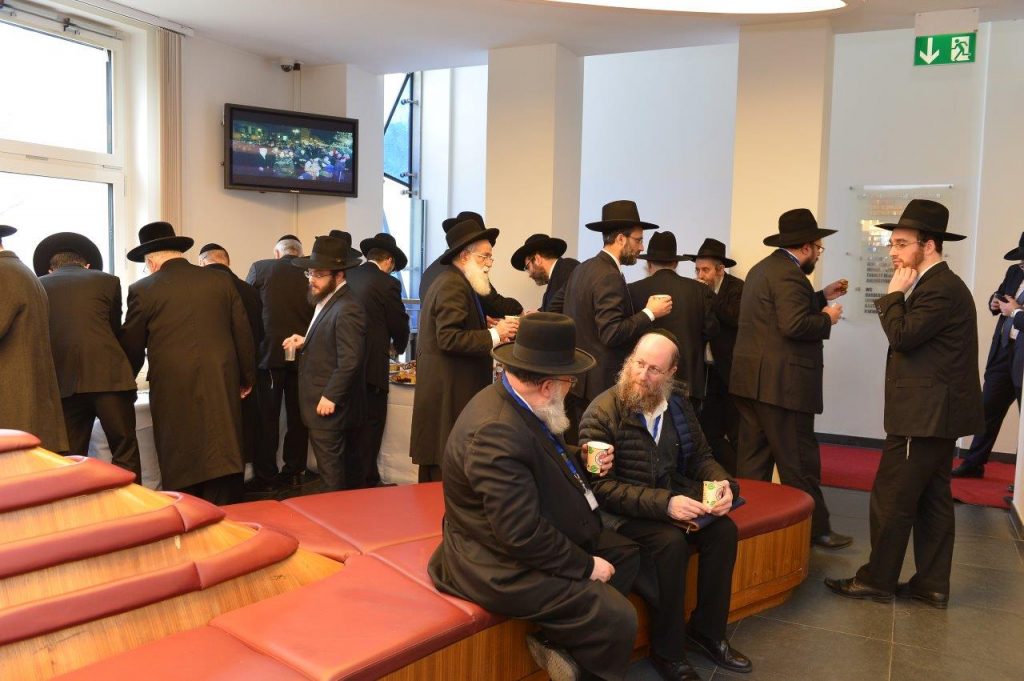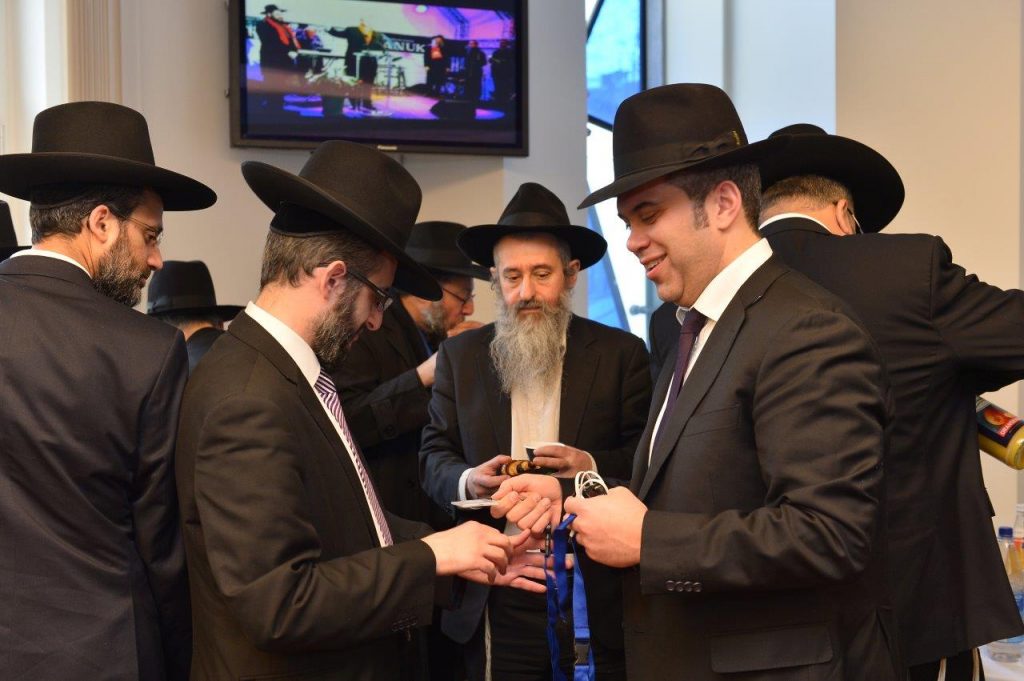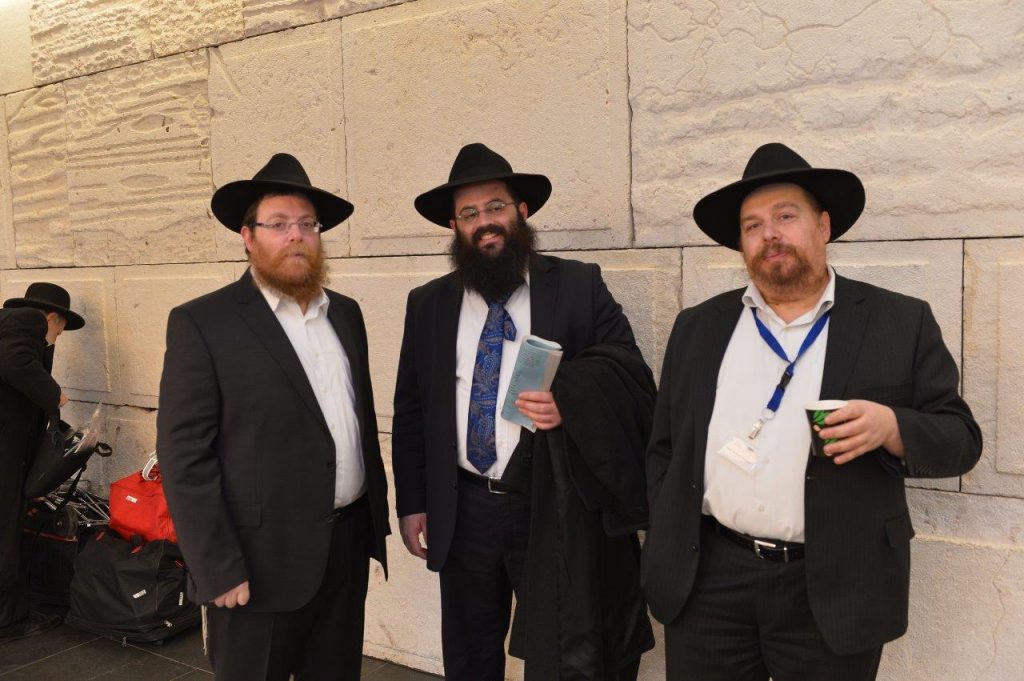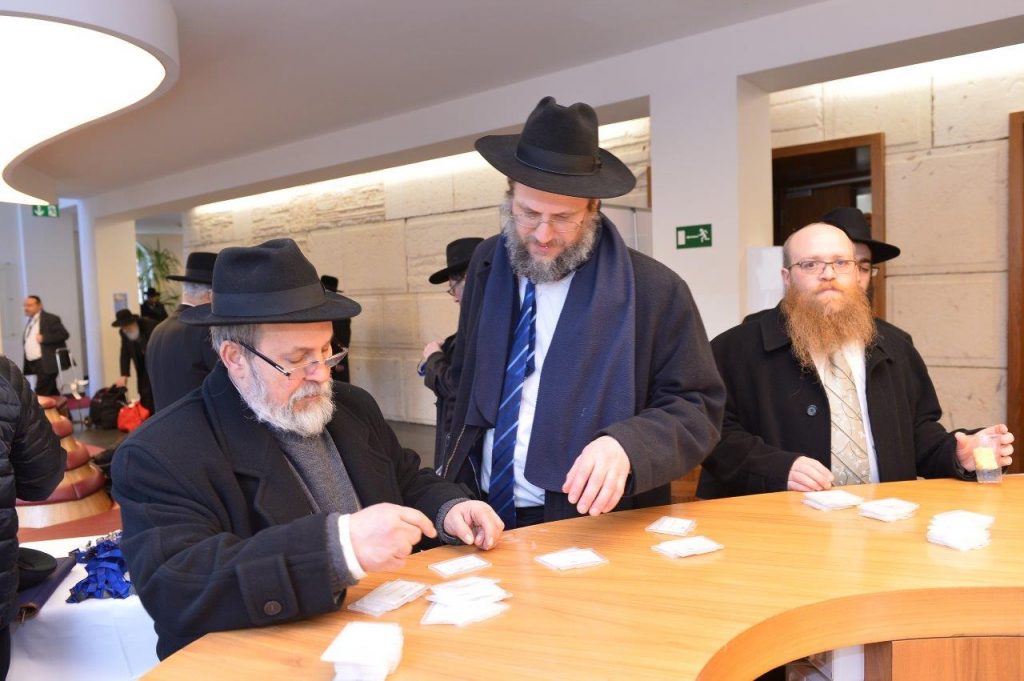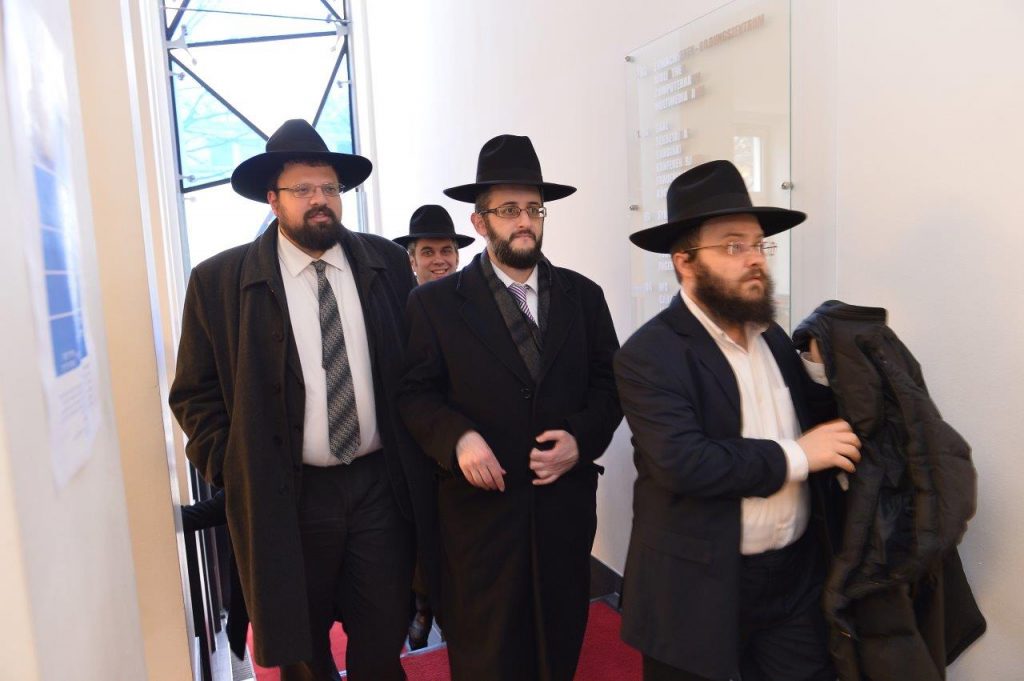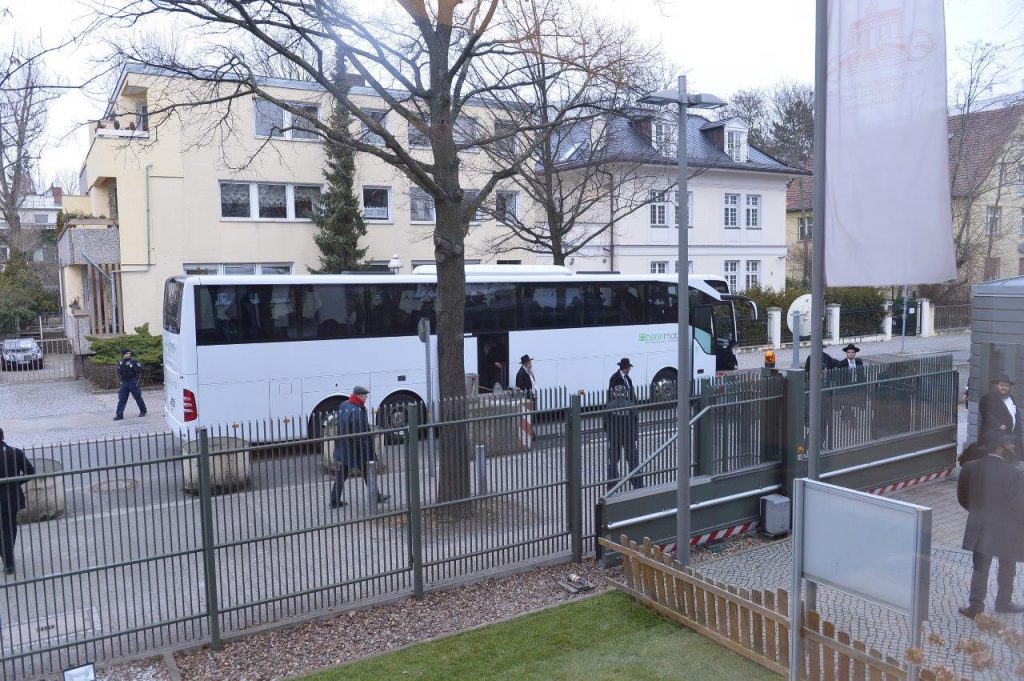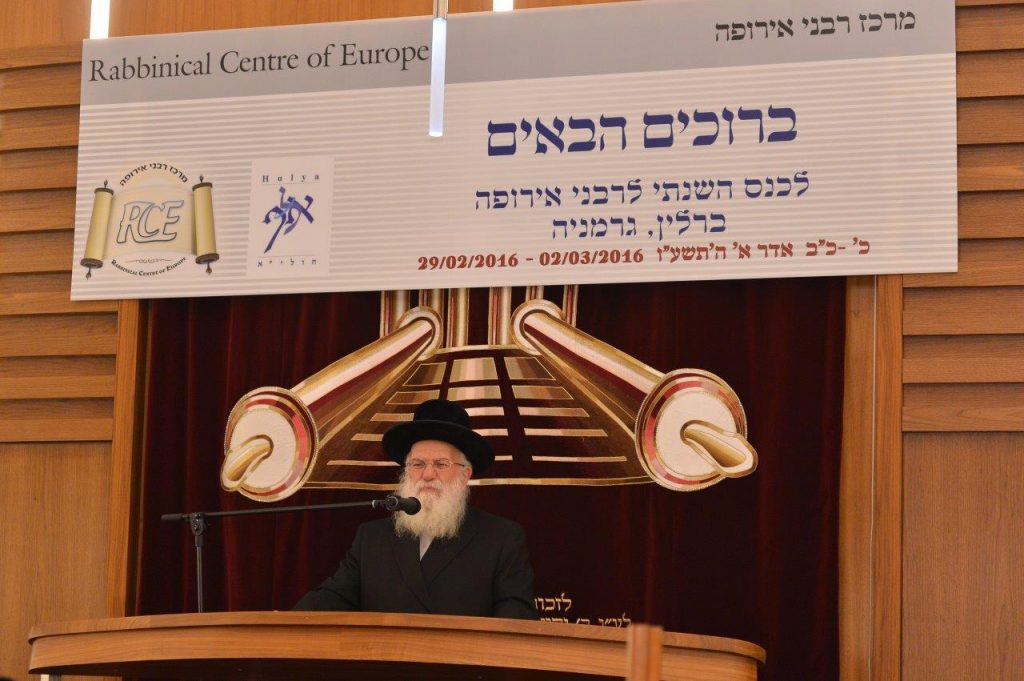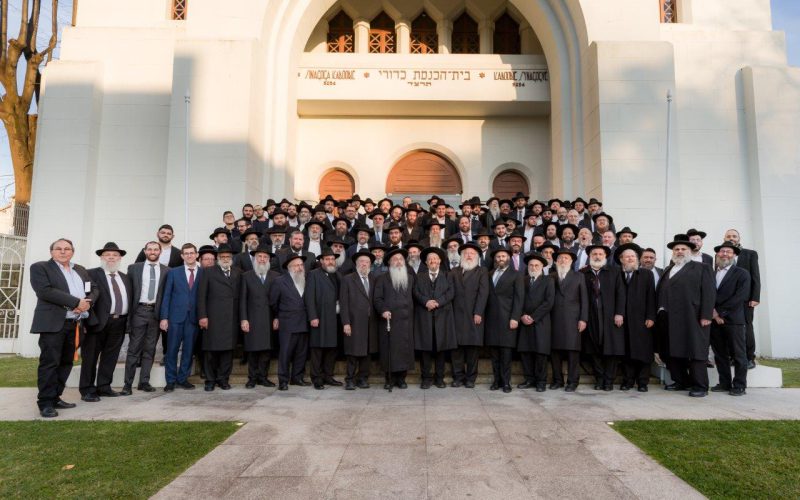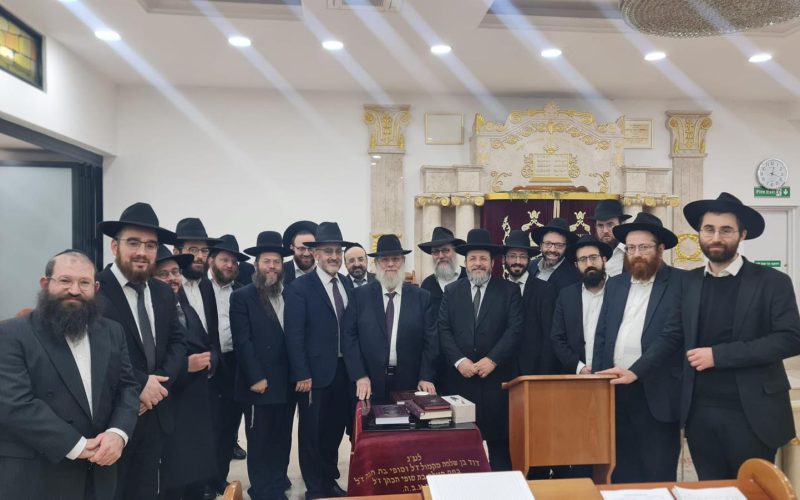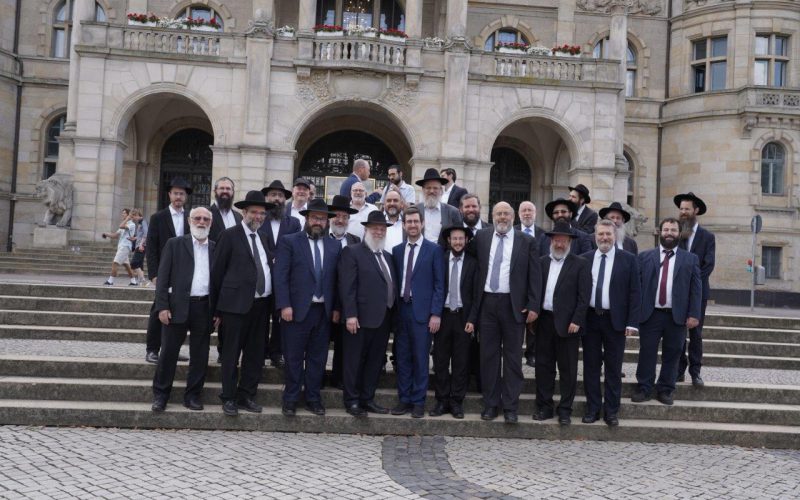The Annual Conference of RCE in Berlin
Close to 120 rabbis from all over Europe gathered in Berlin, Germany, for the annual conference of the Rabbinical Centre of Europe.
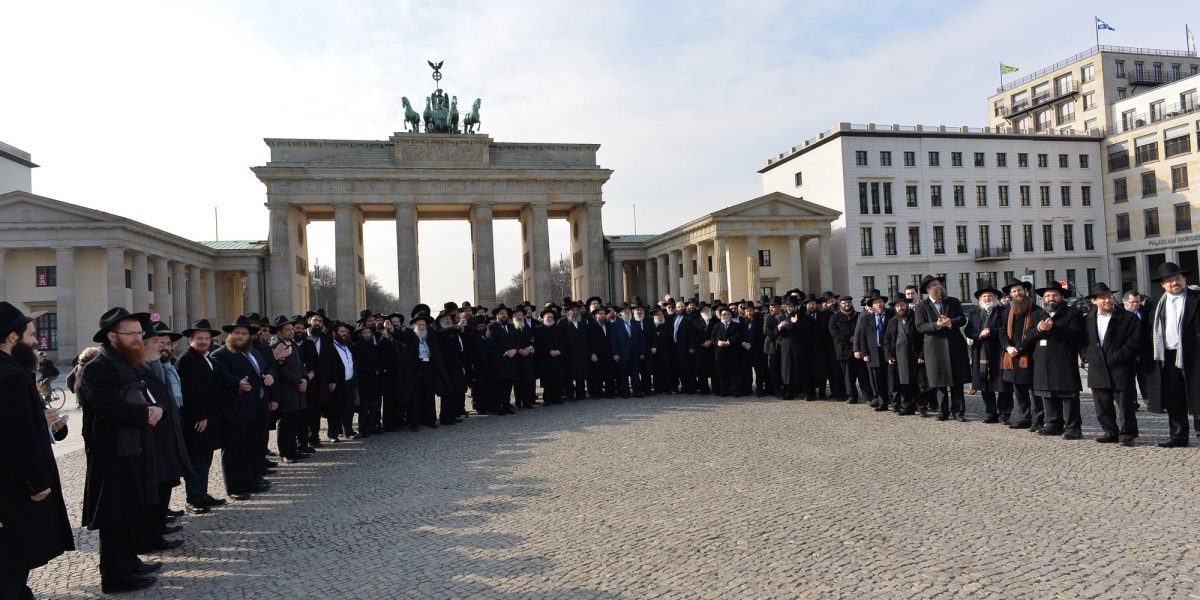
Close to 120 rabbis from all over Europe gathered in Berlin, Germany, for the annual conference of the Rabbinical Centre of Europe. Now in its fifteenth year, this conference is held in a different European city each year and is attended by city and community rabbis. The three-day conference was hosted by the local Chabad House and the rabbi of Berlin’s Jewish community, Rabbi Yehudah Teichtal. The event was sponsored financially by the Hulya Organization, a subsidiary of Matanel Foundation, under the direction of Mr. Albert Aflalo.
Shortly after arriving at their hotel, the rabbis were taken to the spacious complex of Berlin’s Chabad House, which has ample security in place constantly. All the workshops and lectures took place at the Chabad House. Rabbi Aryeh Goldberg, deputy director of the RCE, greeted the rabbis in the name of the RCE’s presidium, the Rabbinical Council, director of the RCE Rabbi Menachem Margolin, and the entire staff, who worked together tirelessly to prepare for the conference. He remarked that the very fact that rabbis from every corner of Europe are meeting is most significant, as it gives them the opportunity to discuss a wide variety of pertinent topics and to share their experiences with one another, which is so crucial for those in leadership roles.
The conference’s host, Rabbi Yehudah Teichtal, is rabbi of Berlin’s Jewish community and a member of its beis din. In his opening remarks Rabbi Teichtal described the beautiful growth of Jewish life that is taking place there, and he spoke of his own experience in building a Torah community in the very location where our nation suffered one of the greatest tragedies of our history.
Rabbi Yochanan Gur Aryeh of Holon, Israel, related that even in Eretz Yisrael there are many Rashei Yeshivos who have issued invalid kesubos because they are not well-versed in the halachos involved in officiating at a wedding. “In my many years in the field, with much experience in this area of halachah, I have found glaring errors in kesubos on numerous occasions,” he explained. He went on to discuss the various options for rabbis who need to verify someone’s Jewish identity when people wish to get married or for any other purpose.
Rabbi Gur Aryeh described a number of incidents in which he himself was involved and how he found solutions or guided others to solve the problems. “In Eretz Yisrael, many people who are authorized to officiate at weddings are actually not at all qualified to do so. In some instances Rashei Yeshivah erroneously permitted relatives of the bride and groom to be the official witnesses under the chuppah and to sign the kesubah.”
Rabbi Dr. Neriah Gutel, president of Orot Yisrael College, spoke about the challenges of educating and training children, at home and in school. His topic was: “He Who Spares His Rod Hates His Child” – Corporal Punishment at Home and in the Classroom. He related a number of incidents demonstrating how important it is for parents and teachers to understand what motivates a child to act as he does. Is the child is trying to convey an important message through his misbehavior?
There was a panel discussion on practical halachic issues, with Rabbi Meir Sirota, a member of the beis din of the Eidah Hachareidis. Rabbi Avraham Abba Turetzky of the RCE moderated the panel, which addressed numerous questions concerning the halachos of mikveh and Shabbos, that had been sent to the RCE by European rabbis. The discussion soon evolved into a lively debate, and the session continued well beyond its scheduled time. The rabbis described dilemmas they had faced. For example, one rabbi related that a family wished to celebrate their son’s bar mitzvah and have him go up to the Torah, and so they traveled by car to the synagogue on Shabbos. How should the rabbi react in a such case?
Rabbi Sirota praised the participating rabbis for their vast knowledge of halachah, and he listed the sources on which he based his rulings. After the panel discussion was over, the rabbis approached Rabbi Sirota for clarification of various details. Even as they made their way out into the hallway, the rabbis continued discussing what they had learned.
Rabbi Lior Enbar is a 20-year veteran in the field of Torah education. He mesmerized the rabbis with his presentation of an exclusive system he has developed, which he calls “Chassidus d’Gufa,” for instilling values in students.
Rabbi Enbar began his lecture with a video presentation and practical demonstrations to convey his ideas. At one point he brought all the participants into an adjacent meeting hall, where he instructed the rabbis to do a number of breathing and relaxation exercises, followed by some simple physical exercises. In this way Rabbi Enbar proved to the rabbis that there are things they – and others – can accomplish even when they are sure that they are not capable of doing them. “With just a little preparation and belief in one’s own abilities,” Rabbi Enbar concluded, “a person can achieve many new and surprising things.” This was the first of three lectures he delivered during the conference. The rabbis were enthusiastic about both his message and his presentation approach.
One of the central topics discussed during the conference was the EK, the RCE’s new kashrus organization, which has been well received by many European food manufacturers. Rabbi Yirmiyah Cohen, a member of the RCE presidium and the rabbinical advisor to the EK, delivered a fascinating lecture about the kashrus of various products, citing many of the cases he has dealt with during his years of experience in the field.
The first day of the conference was topped off by a delicious dinner, during which the participants heard from Rabbi Yisrael Yaakov Lichtenstein, Av Beis Din of London’s Federation of Synagogues and member of the RCE’s presidium. He discussed an absorbing halachic issue with practical ramifications, after which he spoke on behalf of all the attending rabbis, thanking Rabbi Menachem Margolin and Rabbi Aryeh Goldberg, Rabbi Avraham Abba Turetzky, Rabbi Yossi Beinhacker and Rabbi Naftali Felman for all their work in preparing this conference with its rich and varied program. He pointed out that the RCE is always available to European rabbis whenever they need assistance, making their jobs much easier to handle.
Tuesday was dedicated to the subject of verifying Jewish identity. Rabbi Shimon Har-Shalom, an expert in this area, works a great deal with the Beis Din of Israel’s Chief Rabbinate in Yerushalayim. His opinion in these matters is highly regarded, and his testimony is always relied on. He delivered several lectures and used a video presentation to demonstrate to the rabbis how a community rabbi should examine certificates and documents brought before him; he also offered practical advice for establishing a person’s Jewish identity.
Later, in response to growing anti-Semitism in European states, Rabbi Lior Enbar led a class in self-defense. The lesson was part of his “Chassidus d’Gufa” system.
Afterward the rabbis were taken for a visit to “Platform 17” in Berlin’s train station. During the Holocaust, this was one of the main points from which some 55,000 Jews were shipped to the Warsaw, Lodz and Riga ghettoes, and to the Auschwitz death camp. A number of media people were on hand to report on the rabbis’ visit. They interviewed the rabbis and asked about their impressions of this visit. (More about this in a separate article.)
That afternoon, for the first time ever, the president of Germany’s Bundestag, Dr. Norbert Lammert, came to pay his respects to the conference and the participating rabbis. Dr. Lammert, the number-two man in Germany’s government, spoke to all those in attendance. (More about this in a separate article.)
At dinner that evening, the rabbis were joined by several consuls of member-states of the European Union. Each consul was seated at a table together with the rabbi from the country he represented. (See separate picture gallery.)
On Wednesday, after hearing several lectures on topics related to Jewish education and halachah, by Rabbi Meir Sirota, Rabbi Lior Enbar and Rabbi Shimon Har-Shalom, and a final lecture by Rabbi Moshe Genuth on the power of the Jewish soul, the convention came to a close. Each rabbi returned to his own community armed with a new storehouse of knowledge to assist him in his duties.
